Shows
 The Chris Hedges Report PodcastTrump’s Useful Idiots - Read by Eunice WongThis article is read by Eunice Wong, a Juilliard-trained actor, featured on Audible's list of Best Women Narrators. Her work is on the annual Best Audiobooks lists of the New York Times, Audible, AudioFile, & Library Journal. www.eunicewong.actorText originally published May 26, 2025Full text: The media, universities, the Democratic Party and liberals, by embracing the fiction of “rampant antisemitism,” laid the groundwork for their own demise. Columbia and Princeton, where I have taught, and Harvard, which I attended, are not incubators of hatred towards Jews. The New York Times, where I worked for...2025-06-0916 min
The Chris Hedges Report PodcastTrump’s Useful Idiots - Read by Eunice WongThis article is read by Eunice Wong, a Juilliard-trained actor, featured on Audible's list of Best Women Narrators. Her work is on the annual Best Audiobooks lists of the New York Times, Audible, AudioFile, & Library Journal. www.eunicewong.actorText originally published May 26, 2025Full text: The media, universities, the Democratic Party and liberals, by embracing the fiction of “rampant antisemitism,” laid the groundwork for their own demise. Columbia and Princeton, where I have taught, and Harvard, which I attended, are not incubators of hatred towards Jews. The New York Times, where I worked for...2025-06-0916 min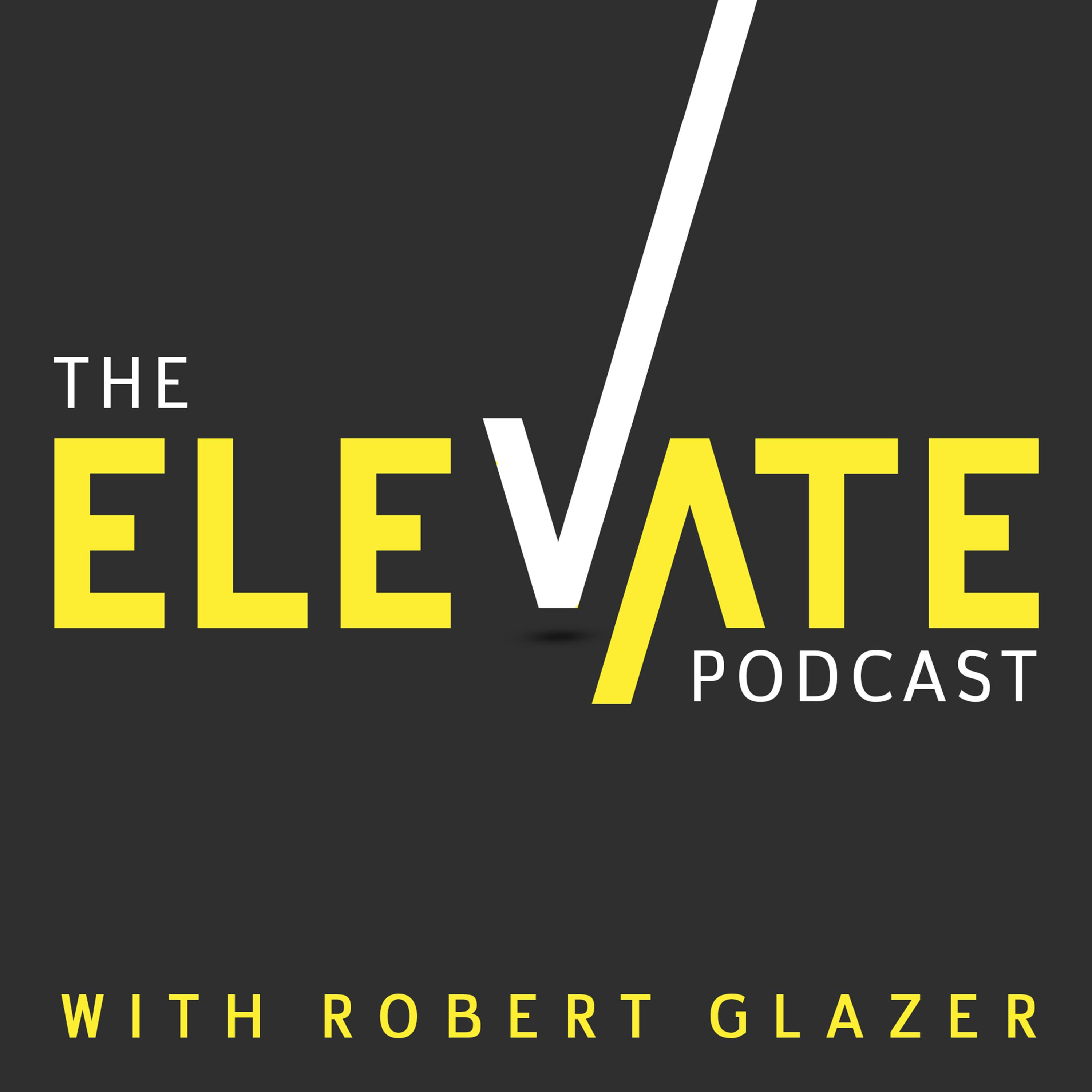 Elevate with Robert GlazerIs This The Worst Job In America?Imagine trying to lead an organization under extreme pressure from employees, customers, funders and even the federal government. That is the unenviable position facing the next president of Columbia University--and a case study that leaders in all types of organizations can learn from.On a new Elevate Podcast series, Thinking Thursdays, host Robert Glazer and producer Mick Sloan delve into the past two leaders of Columbia: Minouche Shafik, who stepped down after a year filled with campus unrest, and her successor, Interim President Katrina Armstrong, who resigned six months later after a very public...2025-04-0358 min
Elevate with Robert GlazerIs This The Worst Job In America?Imagine trying to lead an organization under extreme pressure from employees, customers, funders and even the federal government. That is the unenviable position facing the next president of Columbia University--and a case study that leaders in all types of organizations can learn from.On a new Elevate Podcast series, Thinking Thursdays, host Robert Glazer and producer Mick Sloan delve into the past two leaders of Columbia: Minouche Shafik, who stepped down after a year filled with campus unrest, and her successor, Interim President Katrina Armstrong, who resigned six months later after a very public...2025-04-0358 min The Economics ShowWhat future for aid and development? With Minouche ShafikUS President Donald Trump has frozen all foreign aid payments, while Elon Musk is putting America’s biggest development agency, USAID, “through the woodchipper”. Meanwhile, the UK government has just announced it will slash its aid budget from 0.5% to 0.3% of GDP. So are the days of generous programmes to promote health and education in the poorest nations now over? And should we fear that rising authoritarian powers, most notably China, are stepping into the breach with their own funds and parallel institutions? In an interview recorded just before the UK’s announcement, Alan Beattie speaks to economist Minouche Shafik, who is a...2025-02-2732 min
The Economics ShowWhat future for aid and development? With Minouche ShafikUS President Donald Trump has frozen all foreign aid payments, while Elon Musk is putting America’s biggest development agency, USAID, “through the woodchipper”. Meanwhile, the UK government has just announced it will slash its aid budget from 0.5% to 0.3% of GDP. So are the days of generous programmes to promote health and education in the poorest nations now over? And should we fear that rising authoritarian powers, most notably China, are stepping into the breach with their own funds and parallel institutions? In an interview recorded just before the UK’s announcement, Alan Beattie speaks to economist Minouche Shafik, who is a...2025-02-2732 min Party GirlsJuly Talks Dirty, Shafik Resigns, & Bangladesh RevoltsThe classic Party Girls lineup is back with a grab bag of an episode, covering such wide-ranging and relevant topics as: Miranda July's dirty new book, Minouche Shafik's resignation from her post as President of Columbia University, DSA's delusions of grandeur, and the student movement's toppling of the government in Bangladesh.
Hadas Thier, "Who's Afraid of the Student Intifada?": https://hammerandhope.org/article/campus-protests-students-gaza
Sign up as a supporter at Patreon.com/partygirls to get access to our Discord, a shout out on the pod, and access to all bonus content.
Leave us...2024-08-171h 12
Party GirlsJuly Talks Dirty, Shafik Resigns, & Bangladesh RevoltsThe classic Party Girls lineup is back with a grab bag of an episode, covering such wide-ranging and relevant topics as: Miranda July's dirty new book, Minouche Shafik's resignation from her post as President of Columbia University, DSA's delusions of grandeur, and the student movement's toppling of the government in Bangladesh.
Hadas Thier, "Who's Afraid of the Student Intifada?": https://hammerandhope.org/article/campus-protests-students-gaza
Sign up as a supporter at Patreon.com/partygirls to get access to our Discord, a shout out on the pod, and access to all bonus content.
Leave us...2024-08-171h 12 Things You Might Not Have HeardMatthew Perry, Stonehenge, Julie Newmar & More - 8/16/2024Today's Sponsor: Zenni Opticalhttp://thisistheconversationproject.com/zenni Today's Rundown:Arrests made in drug investigation into Matthew Perry's ketamine deathhttps://abcnews.go.com/US/matthew-perry-ketamine-death-drug-charges/story?id=111460149 Gypsy Rose Blanchard Could Be Heading Back to Prison After Violating Her Parolehttps://www.distractify.com/p/is-gypsy-rose-going-back-to-jail-2024 Alex Murdaugh could get new South Carolina trial as Supreme Court agrees to take up jury tampering casehttps://www.foxnews.com/us/alex-murdaugh-could-get-new-south-carolina-trial-supreme-court-agrees-take-jury-tampering-case Stonehenge’s ‘altar stone’ originally came from Scotland and not Wales, new research showshttps://apnews.com/arti...2024-08-1634 min
Things You Might Not Have HeardMatthew Perry, Stonehenge, Julie Newmar & More - 8/16/2024Today's Sponsor: Zenni Opticalhttp://thisistheconversationproject.com/zenni Today's Rundown:Arrests made in drug investigation into Matthew Perry's ketamine deathhttps://abcnews.go.com/US/matthew-perry-ketamine-death-drug-charges/story?id=111460149 Gypsy Rose Blanchard Could Be Heading Back to Prison After Violating Her Parolehttps://www.distractify.com/p/is-gypsy-rose-going-back-to-jail-2024 Alex Murdaugh could get new South Carolina trial as Supreme Court agrees to take up jury tampering casehttps://www.foxnews.com/us/alex-murdaugh-could-get-new-south-carolina-trial-supreme-court-agrees-take-jury-tampering-case Stonehenge’s ‘altar stone’ originally came from Scotland and not Wales, new research showshttps://apnews.com/arti...2024-08-1634 min Things You Might Not Have HeardMatthew Perry, Stonehenge, Julie Newmar & More - 8/16/2024Today's Sponsor: Zenni Opticalhttp://thisistheconversationproject.com/zenni Today's Rundown:Arrests made in drug investigation into Matthew Perry's ketamine deathhttps://abcnews.go.com/US/matthew-perry-ketamine-death-drug-charges/story?id=111460149 Gypsy Rose Blanchard Could Be Heading Back to Prison After Violating Her Parolehttps://www.distractify.com/p/is-gypsy-rose-going-back-to-jail-2024 Alex Murdaugh could get new South Carolina trial as Supreme Court agrees to take up jury tampering casehttps://www.foxnews.com/us/alex-murdaugh-could-get-new-south-carolina-trial-supreme-court-agrees-take-jury-tampering-case Stonehenge’s ‘altar stone’ originally came from Scotland and not Wales, new research showshttps://apnews.com/arti...2024-08-1634 min
Things You Might Not Have HeardMatthew Perry, Stonehenge, Julie Newmar & More - 8/16/2024Today's Sponsor: Zenni Opticalhttp://thisistheconversationproject.com/zenni Today's Rundown:Arrests made in drug investigation into Matthew Perry's ketamine deathhttps://abcnews.go.com/US/matthew-perry-ketamine-death-drug-charges/story?id=111460149 Gypsy Rose Blanchard Could Be Heading Back to Prison After Violating Her Parolehttps://www.distractify.com/p/is-gypsy-rose-going-back-to-jail-2024 Alex Murdaugh could get new South Carolina trial as Supreme Court agrees to take up jury tampering casehttps://www.foxnews.com/us/alex-murdaugh-could-get-new-south-carolina-trial-supreme-court-agrees-take-jury-tampering-case Stonehenge’s ‘altar stone’ originally came from Scotland and not Wales, new research showshttps://apnews.com/arti...2024-08-1634 min NTD Good MorningColumbia U's President Minouche Shafik Resigns; Hurricane Ernesto Strengthens Approaching Bermuda | NTD Good MorningNTD Good Morning—8/15/20241. Hurricane Ernesto Strengthens as it Approaches Bermuda2. Hurricane Ernesto Cuts Power to Half of Puerto Rico3. Columbia's President Minouche Shafik Steps Down4. High Stakes Cease-Fire Talks to Take Place in Qatar5. Russia: American Sentenced for Attacking Police Officer6. Ukraine: Troops Advance in Russia's Kursk Region7. Impact of Japanese Leader’s Exit on Regional Geopolitics8. Harris Announces $90 Million Media Campaign9. Harris to Call for Fed Ban on Food Price Gouging10. Trump Outlines Economic Plan at North Carolina Rall...2024-08-151h 33
NTD Good MorningColumbia U's President Minouche Shafik Resigns; Hurricane Ernesto Strengthens Approaching Bermuda | NTD Good MorningNTD Good Morning—8/15/20241. Hurricane Ernesto Strengthens as it Approaches Bermuda2. Hurricane Ernesto Cuts Power to Half of Puerto Rico3. Columbia's President Minouche Shafik Steps Down4. High Stakes Cease-Fire Talks to Take Place in Qatar5. Russia: American Sentenced for Attacking Police Officer6. Ukraine: Troops Advance in Russia's Kursk Region7. Impact of Japanese Leader’s Exit on Regional Geopolitics8. Harris Announces $90 Million Media Campaign9. Harris to Call for Fed Ban on Food Price Gouging10. Trump Outlines Economic Plan at North Carolina Rall...2024-08-151h 33 The Patriot CauseUS College Students Tend to be Communists?Student debt has gotten very, very, high. Students go to college, have fun, work hard and end up 50–60–100 thousand dollars in debt (plus interest). Worse it has become impossible to manage this debt through good old fashioned capitalism, where in the 1970s one could work of a year of tuition, housing, and textbooks with 480 hours of work per year (a nice full time summer job), now a student would need to work over 2,000 hours just for the tuition (never mind textbooks or the housing), a nearly impossible feat for a full time student even when a job can be foun...2024-05-0833 min
The Patriot CauseUS College Students Tend to be Communists?Student debt has gotten very, very, high. Students go to college, have fun, work hard and end up 50–60–100 thousand dollars in debt (plus interest). Worse it has become impossible to manage this debt through good old fashioned capitalism, where in the 1970s one could work of a year of tuition, housing, and textbooks with 480 hours of work per year (a nice full time summer job), now a student would need to work over 2,000 hours just for the tuition (never mind textbooks or the housing), a nearly impossible feat for a full time student even when a job can be foun...2024-05-0833 min StoriesEp.540: Alla Columbia è iniziato tuttoLa situazione nelle università americane durante le proteste per Gaza e contro le collaborazioni degli atenei con Israele è rimasta pacifica – quantomeno nelle azioni, non sempre nella retorica – fino a quando Minouche Shafik, la prima donna a capo della Columbia University, non ha chiamato per la prima volta la polizia a sgomberare l’accampamento dei manifestanti nel cortile. La stessa cosa, nello stesso posto, era successa il 30 aprile 1968, quando centinaia di studenti occuparono la Columbia per chiedere la fine di ogni forma di collaborazione tra l’università e l’esercito americano nella guerra in Vietnam. La decisione di chiamare la polizia ha in...2024-05-0314 min
StoriesEp.540: Alla Columbia è iniziato tuttoLa situazione nelle università americane durante le proteste per Gaza e contro le collaborazioni degli atenei con Israele è rimasta pacifica – quantomeno nelle azioni, non sempre nella retorica – fino a quando Minouche Shafik, la prima donna a capo della Columbia University, non ha chiamato per la prima volta la polizia a sgomberare l’accampamento dei manifestanti nel cortile. La stessa cosa, nello stesso posto, era successa il 30 aprile 1968, quando centinaia di studenti occuparono la Columbia per chiedere la fine di ogni forma di collaborazione tra l’università e l’esercito americano nella guerra in Vietnam. La decisione di chiamare la polizia ha in...2024-05-0314 min Israel Headline NewsLatest News - Fri 03 May 2024In this episode of Israel Headline News, Daniel brings you the latest updates on the Israeli man held hostage in Gaza, Dror Or, who has been confirmed dead by the Israeli government. The announcement comes as mediators await Hamas's response to a new Israeli proposal for a ceasefire and hostage release.
Next, Daniel discusses the criticism faced by Columbia University President Nemat Minouche Shafik for her handling of anti-Israel radicals on campus. The American Association of University Professors (AAUP) chapter at Columbia has called for a vote of no confidence in Shafik and other administration officials.2024-05-0309 min
Israel Headline NewsLatest News - Fri 03 May 2024In this episode of Israel Headline News, Daniel brings you the latest updates on the Israeli man held hostage in Gaza, Dror Or, who has been confirmed dead by the Israeli government. The announcement comes as mediators await Hamas's response to a new Israeli proposal for a ceasefire and hostage release.
Next, Daniel discusses the criticism faced by Columbia University President Nemat Minouche Shafik for her handling of anti-Israel radicals on campus. The American Association of University Professors (AAUP) chapter at Columbia has called for a vote of no confidence in Shafik and other administration officials.2024-05-0309 min Jenna Ellis TonightUniversity Protesters, Michael Cohen TikTok, Minouche Shafik ScandalJenna Ellis (:36) - Columbia University protesters were arrested after they occupied Hamilton Hall on campus. UCLA protesters were throwing punches and it took law enforcement 3 hours to respond. With so many protests across the nation, are they all coordinated? How do we analyze this from the conservative perspective Matthew Tyrmand (10:48) - Columbia University professor Mohamed Abdou told an undercover camera from V24 investigations that President Minouche Shafik “lied” when saying she would fire him during her congressional testimony. The head of V24 Investigations joins us to break down the story. John Cardillo (19:29) - Former NYPD offi...2024-05-0243 min
Jenna Ellis TonightUniversity Protesters, Michael Cohen TikTok, Minouche Shafik ScandalJenna Ellis (:36) - Columbia University protesters were arrested after they occupied Hamilton Hall on campus. UCLA protesters were throwing punches and it took law enforcement 3 hours to respond. With so many protests across the nation, are they all coordinated? How do we analyze this from the conservative perspective Matthew Tyrmand (10:48) - Columbia University professor Mohamed Abdou told an undercover camera from V24 investigations that President Minouche Shafik “lied” when saying she would fire him during her congressional testimony. The head of V24 Investigations joins us to break down the story. John Cardillo (19:29) - Former NYPD offi...2024-05-0243 min Boletín de Noticias de KBBF / KBBF News Bulletin5-1-24 5-1-24 El martes por la noche, varios de los campamentos de protesta estudiantil en solidaridad con Palestina fueron atacados violentamente. En Nueva York, las administraciones de la Universidad de Columbia y la Universidad de la Ciudad de Nueva York mandaron policía con equipo antidisturbios para atacar los campamentos. La policía arrestó a más de 300 personas, y Minouche Shafik, presidente de la Universidad de Columbia, pidió a la policía que permaneciera en el campus de forma permanente al menos hasta el 17 de mayo para garantizar que no se restableciera el campamento. El reportero de CNN...2024-05-0202 min
Boletín de Noticias de KBBF / KBBF News Bulletin5-1-24 5-1-24 El martes por la noche, varios de los campamentos de protesta estudiantil en solidaridad con Palestina fueron atacados violentamente. En Nueva York, las administraciones de la Universidad de Columbia y la Universidad de la Ciudad de Nueva York mandaron policía con equipo antidisturbios para atacar los campamentos. La policía arrestó a más de 300 personas, y Minouche Shafik, presidente de la Universidad de Columbia, pidió a la policía que permaneciera en el campus de forma permanente al menos hasta el 17 de mayo para garantizar que no se restableciera el campamento. El reportero de CNN...2024-05-0202 min The Briefing with Albert MohlerTuesday, April 30, 2024This is The Briefing, a daily analysis of news and events from a Christian worldview.Part I (00:13 - 10:57)Anti-Semitism in the Name of ‘Free Speech’: Campus Protests Continue at Columbia University and BeyondStatement from Columbia University President Minouche Shafik by Columbia University (Minouche Shafik)Part II (10:57 - 14:47)The Resurgence of Cultural Marxism on University Campuses: The Worldview Driving the Ideological Left’s Hatred of IsraelPart III (14:47 - 18:25)Big Money is Fueling Campus Protests — Haven’t You Wondered Why All the Tents Look the Same?Antisemitism U by The Wall Street Journal (G...2024-04-3022 min
The Briefing with Albert MohlerTuesday, April 30, 2024This is The Briefing, a daily analysis of news and events from a Christian worldview.Part I (00:13 - 10:57)Anti-Semitism in the Name of ‘Free Speech’: Campus Protests Continue at Columbia University and BeyondStatement from Columbia University President Minouche Shafik by Columbia University (Minouche Shafik)Part II (10:57 - 14:47)The Resurgence of Cultural Marxism on University Campuses: The Worldview Driving the Ideological Left’s Hatred of IsraelPart III (14:47 - 18:25)Big Money is Fueling Campus Protests — Haven’t You Wondered Why All the Tents Look the Same?Antisemitism U by The Wall Street Journal (G...2024-04-3022 min Forbes NewsroomAnthony D'Esposito: Why I Have Little Hope After Meeting With Columbia President Minouche ShafikOn "Forbes Newsroom," Rep. Anthony D'Esposito (R-NY) spoke about his recent visit to Columbia University, why he has little hope after meeting with the university's president, Minouche Shafik, why he wants her to resign, his response to criticism from some New York Democrats, and more.See Privacy Policy at https://art19.com/privacy and California Privacy Notice at https://art19.com/privacy#do-not-sell-my-info.2024-04-3014 min
Forbes NewsroomAnthony D'Esposito: Why I Have Little Hope After Meeting With Columbia President Minouche ShafikOn "Forbes Newsroom," Rep. Anthony D'Esposito (R-NY) spoke about his recent visit to Columbia University, why he has little hope after meeting with the university's president, Minouche Shafik, why he wants her to resign, his response to criticism from some New York Democrats, and more.See Privacy Policy at https://art19.com/privacy and California Privacy Notice at https://art19.com/privacy#do-not-sell-my-info.2024-04-3014 min Forbes NewsroomNew York Rep. Malliotakis Says Columbia University President Minouch Shafik Must ResignOn "Forbes Newsroom," Rep. Nicole Malliotakis (R-NY) decried the antisemitic demonstrations at Columbia University, explained why the university's president Minouche Shafik should resign, and decried some Democrats' approaches to Israel.See Privacy Policy at https://art19.com/privacy and California Privacy Notice at https://art19.com/privacy#do-not-sell-my-info.2024-04-2612 min
Forbes NewsroomNew York Rep. Malliotakis Says Columbia University President Minouch Shafik Must ResignOn "Forbes Newsroom," Rep. Nicole Malliotakis (R-NY) decried the antisemitic demonstrations at Columbia University, explained why the university's president Minouche Shafik should resign, and decried some Democrats' approaches to Israel.See Privacy Policy at https://art19.com/privacy and California Privacy Notice at https://art19.com/privacy#do-not-sell-my-info.2024-04-2612 min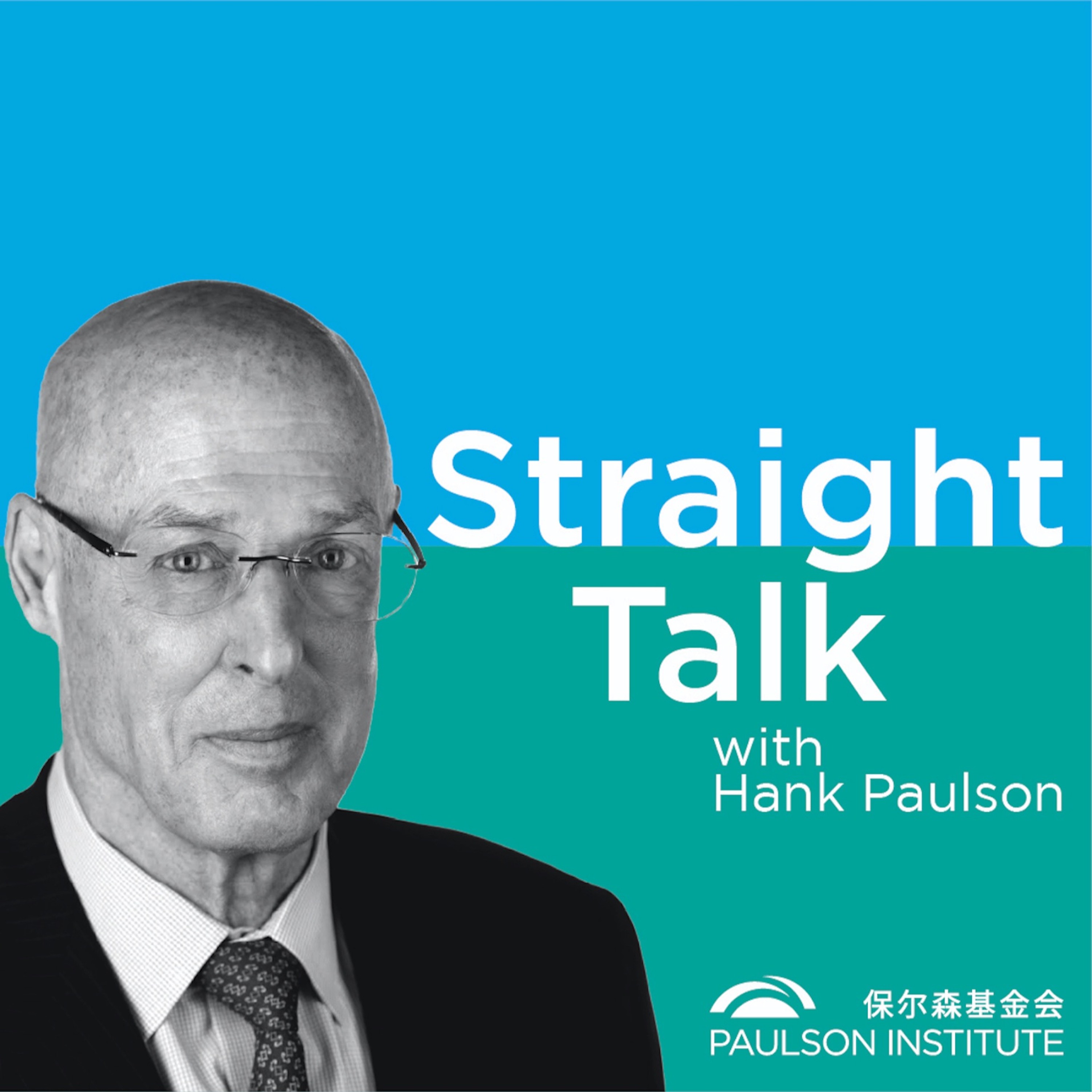 Straight Talk with Hank PaulsonEpisode 81: Minouche ShafikMinouche Shafik (Director, London School of Economics) joins Hank on Straight Talk to discuss her philosophy of education and her vision for the London School of Economics, the role the IMF and Central Banks should play in the transition to a green economy, and her acclaimed book. She shares insights into growing up in the American South, economics and public policy, and how governments can navigate economic growth, national security, and climate change.
Minouche Shafik: https://www.lse.ac.uk/about-lse/lse-leading-women/biographies/minouche-shafik
What We Owe Each Other: https://press.princeton.edu/books/hardcover/9780691204451/what-we-owe-each-other2022-12-1935 min
Straight Talk with Hank PaulsonEpisode 81: Minouche ShafikMinouche Shafik (Director, London School of Economics) joins Hank on Straight Talk to discuss her philosophy of education and her vision for the London School of Economics, the role the IMF and Central Banks should play in the transition to a green economy, and her acclaimed book. She shares insights into growing up in the American South, economics and public policy, and how governments can navigate economic growth, national security, and climate change.
Minouche Shafik: https://www.lse.ac.uk/about-lse/lse-leading-women/biographies/minouche-shafik
What We Owe Each Other: https://press.princeton.edu/books/hardcover/9780691204451/what-we-owe-each-other2022-12-1935 min IFS Zooms In: The EconomyWhat we owe each other: a new social contractThis week, we're bringing you the IFS Annual Lecture, given this year by Baroness Minouche Shafik. In it she talks about what a new social contract for the 21st century would look like.Find out more: https://ifs.org.uk/events/ifs-annual-lecture-baroness-minouche-shafikBecome a member: https://ifs.org.uk/individual-membership Hosted on Acast. See acast.com/privacy for more information.2022-11-1643 min
IFS Zooms In: The EconomyWhat we owe each other: a new social contractThis week, we're bringing you the IFS Annual Lecture, given this year by Baroness Minouche Shafik. In it she talks about what a new social contract for the 21st century would look like.Find out more: https://ifs.org.uk/events/ifs-annual-lecture-baroness-minouche-shafikBecome a member: https://ifs.org.uk/individual-membership Hosted on Acast. See acast.com/privacy for more information.2022-11-1643 min Woman's HourMusician Self Esteem, Baroness Minouche Shafik and Female AstronomersSelf Esteem is creating pop with purpose, tackling the patriarchy, sexual abuse and toxic relationships to a fun danceable beat. She is nominated for this year's Mercury Prize for her second album Prioritise Pleasure and joins Emma in the studio. The cost of living crisis has been a central point of contention between the two candidates vying to be our next Prime Minister. Emma is joined by Baroness Minouche Shafik, Director of the London School of Economics. Previously deputy governor at the Bank of England - touted by many as the favourite to have replaced Mark Carney...2022-08-1652 min
Woman's HourMusician Self Esteem, Baroness Minouche Shafik and Female AstronomersSelf Esteem is creating pop with purpose, tackling the patriarchy, sexual abuse and toxic relationships to a fun danceable beat. She is nominated for this year's Mercury Prize for her second album Prioritise Pleasure and joins Emma in the studio. The cost of living crisis has been a central point of contention between the two candidates vying to be our next Prime Minister. Emma is joined by Baroness Minouche Shafik, Director of the London School of Economics. Previously deputy governor at the Bank of England - touted by many as the favourite to have replaced Mark Carney...2022-08-1652 min The Bunker – News without the nonsenseInside the Coming Inflation Crisis with Minouche ShafikThatcher famously proclaimed that inflation is the parent of unemployment. But as shop prices soar, energy bills rocket, and interest rates rise, we’ve all become more aware of the everyday impacts of inflation. So how unique is the crisis we face now? Director of the LSE and former vice-president of the World Bank Baroness Minouche Shafik joins Ros Taylor to unpack inflation.Complete our listener survey for a chance to win a Bunker t-shirt: https://bit.ly/3zFSySB
“COVID has caused upward inflation because of how it has affected global supply chains.”
“The Bank...2022-08-0329 min
The Bunker – News without the nonsenseInside the Coming Inflation Crisis with Minouche ShafikThatcher famously proclaimed that inflation is the parent of unemployment. But as shop prices soar, energy bills rocket, and interest rates rise, we’ve all become more aware of the everyday impacts of inflation. So how unique is the crisis we face now? Director of the LSE and former vice-president of the World Bank Baroness Minouche Shafik joins Ros Taylor to unpack inflation.Complete our listener survey for a chance to win a Bunker t-shirt: https://bit.ly/3zFSySB
“COVID has caused upward inflation because of how it has affected global supply chains.”
“The Bank...2022-08-0329 min Mariella MeetsMinouche ShafikMy next guest is one of the great economic brains in this country. Minouche Shafik’s career has spanned policy and politics, and she has worked at some of the best known national and international institutions.She was the youngest ever Vice President of the World Bank, and has served as Deputy Managing Director of the International Monetary Fund and Deputy Governor of the Bank of England. Now she works as the director of the London School of Economics, and her book “What We Owe Each Other” sets out a new soci...2022-07-2128 min
Mariella MeetsMinouche ShafikMy next guest is one of the great economic brains in this country. Minouche Shafik’s career has spanned policy and politics, and she has worked at some of the best known national and international institutions.She was the youngest ever Vice President of the World Bank, and has served as Deputy Managing Director of the International Monetary Fund and Deputy Governor of the Bank of England. Now she works as the director of the London School of Economics, and her book “What We Owe Each Other” sets out a new soci...2022-07-2128 min buch|essenzMinouche Shafik (2021): Was wir einander schulden
Unsere Gesellschaft verändert sich rasant, weil wir immer älter und mit immer neuen Technologien konfrontiert werden. Die bisherigen Gesellschaftsverträge vieler Nationen können diesem Wandel kaum mehr gerecht werden – eine Tendenz, die die Pandemie beschleunigt hat. Insbesondere für die jüngeren und künftigen Generationen bedeutet dies, dass ihr Leben immer stärker von Unsicherheit und Ungerechtigkeit geprägt sein wird. Neue gesamtgesellschaftliche Übereinkünfte sind daher vonnöten, um den Herausforderungen der Zukunft angemessen zu begegnen. Die bedeutenden Transformationsprozesse haben in den meisten Industriestaaten zur Folge, dass Individuen Risiken wie Arbeitslosigkeit, Krankheit oder Altersabsicherung zunehmend selbst tragen müssen...2022-06-2716 min
buch|essenzMinouche Shafik (2021): Was wir einander schulden
Unsere Gesellschaft verändert sich rasant, weil wir immer älter und mit immer neuen Technologien konfrontiert werden. Die bisherigen Gesellschaftsverträge vieler Nationen können diesem Wandel kaum mehr gerecht werden – eine Tendenz, die die Pandemie beschleunigt hat. Insbesondere für die jüngeren und künftigen Generationen bedeutet dies, dass ihr Leben immer stärker von Unsicherheit und Ungerechtigkeit geprägt sein wird. Neue gesamtgesellschaftliche Übereinkünfte sind daher vonnöten, um den Herausforderungen der Zukunft angemessen zu begegnen. Die bedeutenden Transformationsprozesse haben in den meisten Industriestaaten zur Folge, dass Individuen Risiken wie Arbeitslosigkeit, Krankheit oder Altersabsicherung zunehmend selbst tragen müssen...2022-06-2716 min Roda VivaMinouche Shafik | 04/04/2022No Roda Viva, a jornalista Vera Magalhães recebe a economista Minouche Shafik, diretora da London School of Economics, uma das mais prestigiadas escolas de economia do mundo. Aos 36 anos, ela foi a mais jovem vice-presidente do Banco Mundial. Graduada em economia pela Universidade de Massachusetts, com Mestrado na London School Of Economics e Doutorado em Oxford, Minouche Shafik também ocupou cargos de direção no Fundo Monetário Internacional, no Departamento de Desenvolvimento Internacional do Reino Unido e no Banco da Inglaterra. Em 2015, recebeu da rainha Elizabeth II uma condecoração que lhe garante o título de barone...2022-04-051h 33
Roda VivaMinouche Shafik | 04/04/2022No Roda Viva, a jornalista Vera Magalhães recebe a economista Minouche Shafik, diretora da London School of Economics, uma das mais prestigiadas escolas de economia do mundo. Aos 36 anos, ela foi a mais jovem vice-presidente do Banco Mundial. Graduada em economia pela Universidade de Massachusetts, com Mestrado na London School Of Economics e Doutorado em Oxford, Minouche Shafik também ocupou cargos de direção no Fundo Monetário Internacional, no Departamento de Desenvolvimento Internacional do Reino Unido e no Banco da Inglaterra. Em 2015, recebeu da rainha Elizabeth II uma condecoração que lhe garante o título de barone...2022-04-051h 33 The Fair Society seriesWhat We Owe Each Other: A New Social Contract (with Minouche Shafik)What does society owe each of us? And what do we owe in return?Our answer to these inescapable questions – known as the social contract – shapes our politics, economic systems and every stage of life, from raising children and going to school to finding work and growing old. Yet today, many believe that this contract is not working for them.In What We Owe Each Other: A New Social Contract, leading economist and Director of the LSE, Minouche Shafik, examines societies across the world and demonstrates that the urgent challenges of technology, demography and clim...2022-03-3159 min
The Fair Society seriesWhat We Owe Each Other: A New Social Contract (with Minouche Shafik)What does society owe each of us? And what do we owe in return?Our answer to these inescapable questions – known as the social contract – shapes our politics, economic systems and every stage of life, from raising children and going to school to finding work and growing old. Yet today, many believe that this contract is not working for them.In What We Owe Each Other: A New Social Contract, leading economist and Director of the LSE, Minouche Shafik, examines societies across the world and demonstrates that the urgent challenges of technology, demography and clim...2022-03-3159 min The ECB PodcastBreaking bias to build a more gender-equal worldHow can we break biases in different aspects of our lives? What do we need to create a more equal world for all?
Our President Christine Lagarde and LSE Director Minouche Shafik share their experiences and discuss the impact gender bias has on education, home life, the workplace and leadership in this episode of The ECB Podcast.
The views expressed are those of the speakers and not necessarily those of the European Central Bank.
Recorded on 23 February 2022 and published on 5 March 2022.
In this episode:
2:12 - #BreakTheBias in education
Why there is still a lack of gender equality in economics, and...2022-03-0540 min
The ECB PodcastBreaking bias to build a more gender-equal worldHow can we break biases in different aspects of our lives? What do we need to create a more equal world for all?
Our President Christine Lagarde and LSE Director Minouche Shafik share their experiences and discuss the impact gender bias has on education, home life, the workplace and leadership in this episode of The ECB Podcast.
The views expressed are those of the speakers and not necessarily those of the European Central Bank.
Recorded on 23 February 2022 and published on 5 March 2022.
In this episode:
2:12 - #BreakTheBias in education
Why there is still a lack of gender equality in economics, and...2022-03-0540 min The San Francisco ExperienceMinouche Shafik, Director of the London School of Economics: In Profile. A conversation with Phillip Inman of The Guardian and The Observer.Phillip Inman, Economics correspondent for the UK's The Guardian and Economics Editor for The Observer recently profiled Minouche Shafik, Director of the LSE. He shares his impressions with us in today's podcast episode.2022-03-0127 min
The San Francisco ExperienceMinouche Shafik, Director of the London School of Economics: In Profile. A conversation with Phillip Inman of The Guardian and The Observer.Phillip Inman, Economics correspondent for the UK's The Guardian and Economics Editor for The Observer recently profiled Minouche Shafik, Director of the LSE. He shares his impressions with us in today's podcast episode.2022-03-0127 min IMF PodcastsMinouche Shafik and Kristalina Georgieva on a New Social ContractAs part of the IMF Exchange speaker series, London School of Economics Director, Minouche Shafik and IMF Managing Director, Kristalina Georgieva discuss how current economic trends are straining social safety nets and fueling disaffection among people across the globe. In her latest book What We Owe Each Other, Shafik argues the need for a new social contract. The discussion is moderated by CNN Anchor and Correspondent Eleni Giokos. The podcast is an abridged version of the conversation, you'll find a webcast of the entire event at IMF.org.2022-02-1732 min
IMF PodcastsMinouche Shafik and Kristalina Georgieva on a New Social ContractAs part of the IMF Exchange speaker series, London School of Economics Director, Minouche Shafik and IMF Managing Director, Kristalina Georgieva discuss how current economic trends are straining social safety nets and fueling disaffection among people across the globe. In her latest book What We Owe Each Other, Shafik argues the need for a new social contract. The discussion is moderated by CNN Anchor and Correspondent Eleni Giokos. The podcast is an abridged version of the conversation, you'll find a webcast of the entire event at IMF.org.2022-02-1732 min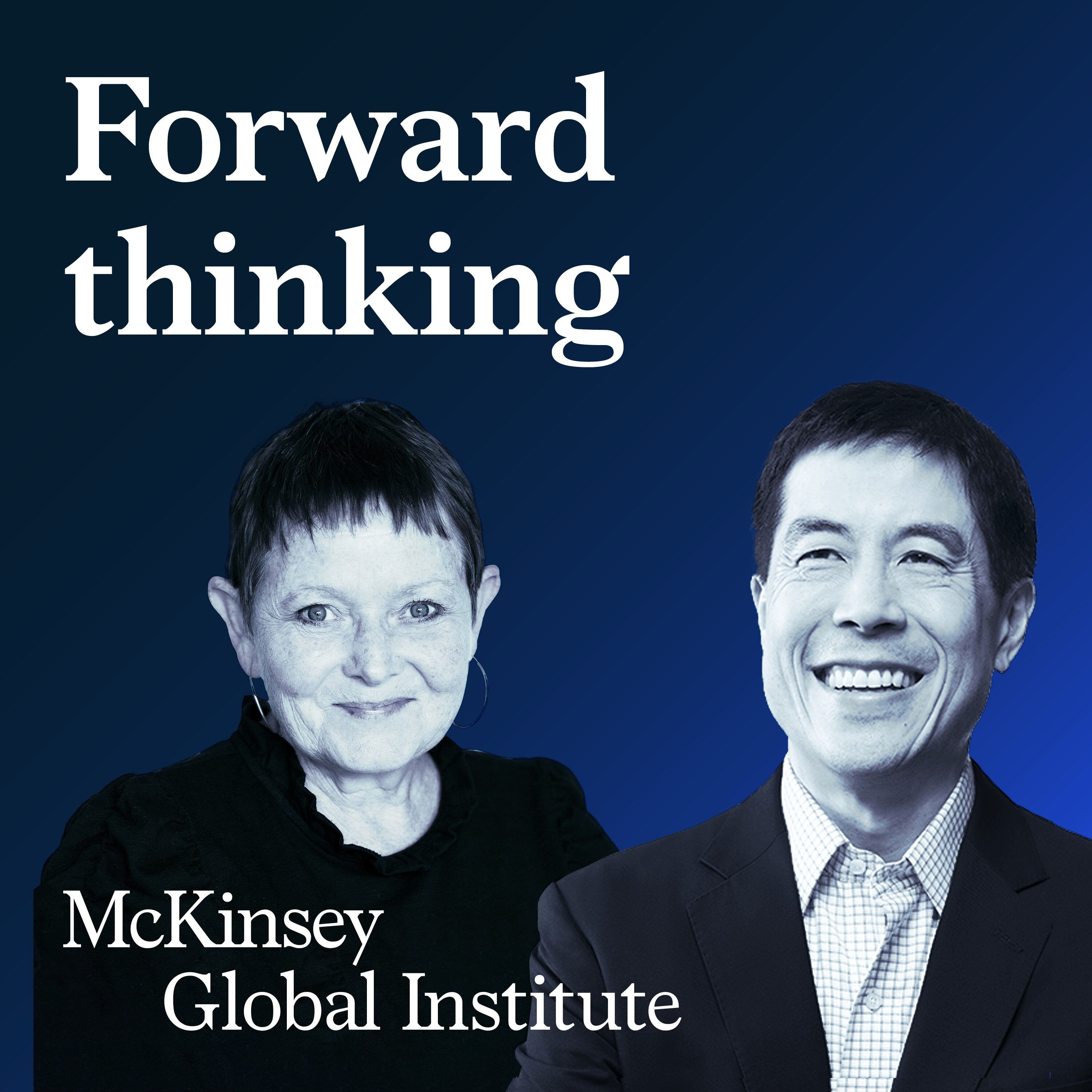 Forward ThinkingForward Thinking on the social contract in a postpandemic world with Minouche Shafik and Andrew ShengIn this episode of the McKinsey Global Institute’s Forward Thinking podcast, guest interviewer Jonathan Woetzel talks with two leading economists spanning Europe and Asia. Baroness Minouche Shafik is director of the London School of Economics and Political Science. Andrew Sheng is distinguished fellow at the Asia Global Institute at the University of Hong Kong. The conversation centers on the state of the social contract that underpins society. They answer questions including: ● What is the social contract, and why do we need one? ● Is the social contract broken, and do we need a new one? ● How does the soci...2022-02-0223 min
Forward ThinkingForward Thinking on the social contract in a postpandemic world with Minouche Shafik and Andrew ShengIn this episode of the McKinsey Global Institute’s Forward Thinking podcast, guest interviewer Jonathan Woetzel talks with two leading economists spanning Europe and Asia. Baroness Minouche Shafik is director of the London School of Economics and Political Science. Andrew Sheng is distinguished fellow at the Asia Global Institute at the University of Hong Kong. The conversation centers on the state of the social contract that underpins society. They answer questions including: ● What is the social contract, and why do we need one? ● Is the social contract broken, and do we need a new one? ● How does the soci...2022-02-0223 min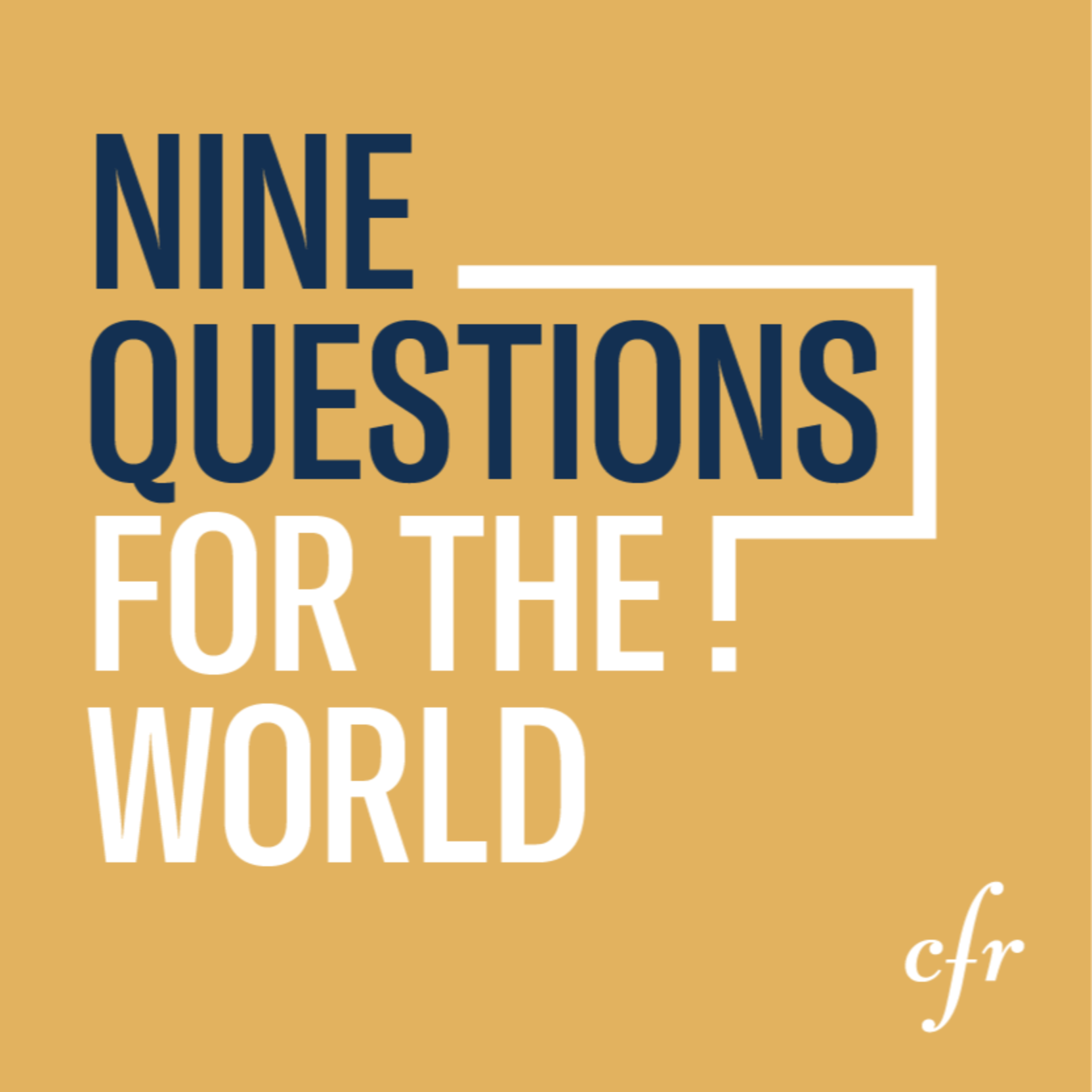 Nine Questions for the WorldDoes the Twenty-First Century Need a New Social Contract?Richard Haass and Minouche Shafik, director of the London School of Economics, assess the future of the labor market and examine how to provide workers with the skills and training they need in an era of ongoing technological change.
Episode Guest:
Minouche Shafik (Director, London School of Economics and Political Science).
This episode is based on a live event that took place on July 15, 2021.
For an episode transcript and show notes, visit us at: https://www.cfr.org/podcasts/does-the-twenty-first-century-need-a-new-social-contract.
2021-12-1535 min
Nine Questions for the WorldDoes the Twenty-First Century Need a New Social Contract?Richard Haass and Minouche Shafik, director of the London School of Economics, assess the future of the labor market and examine how to provide workers with the skills and training they need in an era of ongoing technological change.
Episode Guest:
Minouche Shafik (Director, London School of Economics and Political Science).
This episode is based on a live event that took place on July 15, 2021.
For an episode transcript and show notes, visit us at: https://www.cfr.org/podcasts/does-the-twenty-first-century-need-a-new-social-contract.
2021-12-1535 min CONVOCO! Podcast#57 Do we need a new social contract? - Baroness Minouche Shafik & Corinne FlickIn this C! Podcast Corinne M. Flick speaks with Baroness Shafik, Director of the London School of Economics and author of "What we owe each other", about:Do we need a new social contract?2021-11-1230 min
CONVOCO! Podcast#57 Do we need a new social contract? - Baroness Minouche Shafik & Corinne FlickIn this C! Podcast Corinne M. Flick speaks with Baroness Shafik, Director of the London School of Economics and author of "What we owe each other", about:Do we need a new social contract?2021-11-1230 min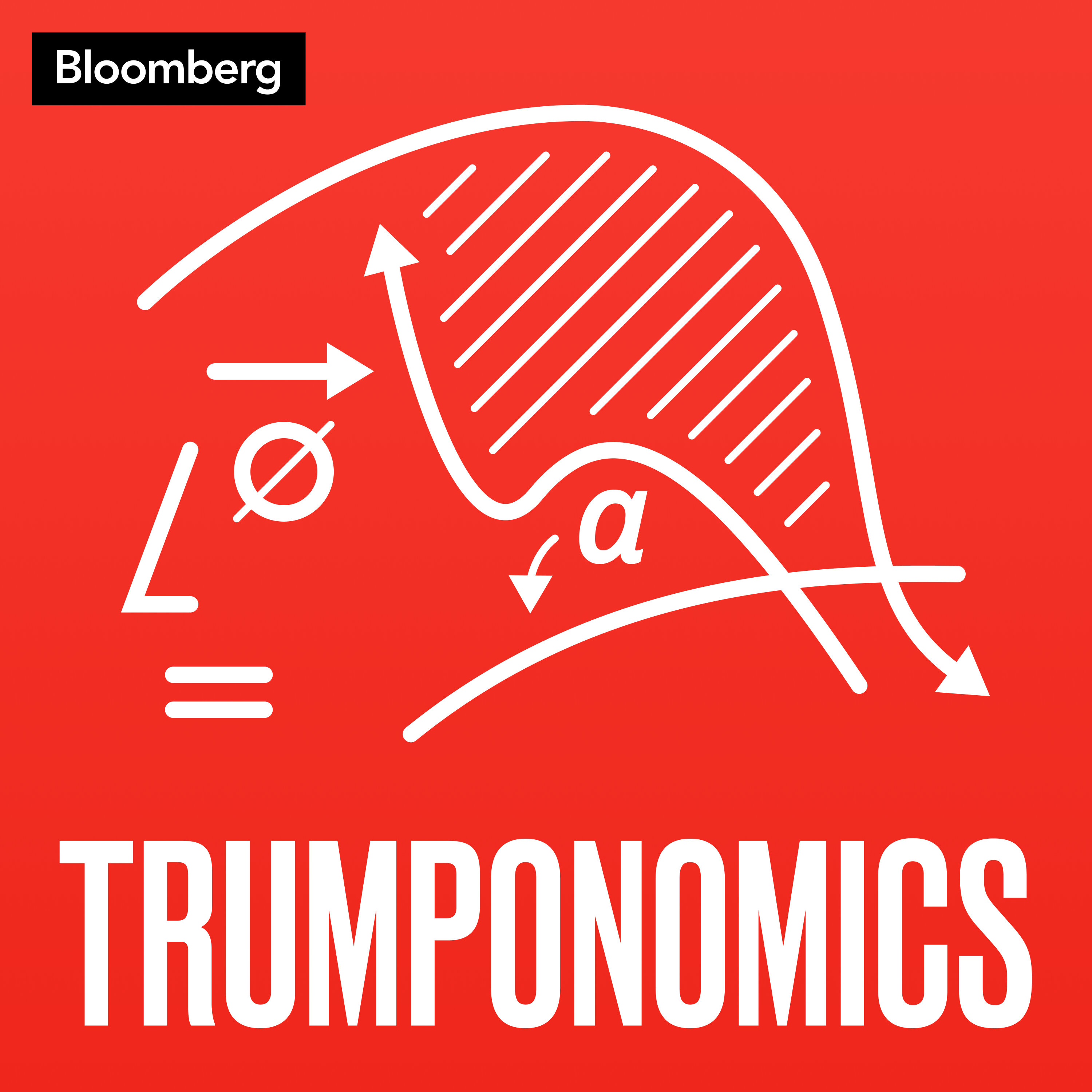 TrumponomicsShould Central Banks Be Responsible for Saving the World?As if controlling spiraling inflation wasn’t enough to worry about, the world’s central bankers are under increasing pressure to help solve climate change, income inequality and myriad other societal ills. What’s more, elected officials in some nations are trying to exert more power over bankers for political ends.Stephanie Flanders debates the proper role of a central banker with three esteemed women economists, Isabel Schnabel of the European Central Bank, Carmen Reinhart of the World Bank and Minouche Shafik of the London School of Economics and Political Science. While bankers can’t be the “white knig...2021-11-0533 min
TrumponomicsShould Central Banks Be Responsible for Saving the World?As if controlling spiraling inflation wasn’t enough to worry about, the world’s central bankers are under increasing pressure to help solve climate change, income inequality and myriad other societal ills. What’s more, elected officials in some nations are trying to exert more power over bankers for political ends.Stephanie Flanders debates the proper role of a central banker with three esteemed women economists, Isabel Schnabel of the European Central Bank, Carmen Reinhart of the World Bank and Minouche Shafik of the London School of Economics and Political Science. While bankers can’t be the “white knig...2021-11-0533 min TrumponomicsShould Central Banks Be Responsible for Saving the World?As if controlling spiraling inflation wasn’t enough to worry about, the world’s central bankers are under increasing pressure to help solve climate change, income inequality and myriad other societal ills. What’s more, elected officials in some nations are trying to exert more power over bankers for political ends.Stephanie Flanders debates the proper role of a central banker with three esteemed women economists, Isabel Schnabel of the European Central Bank, Carmen Reinhart of the World Bank and Minouche Shafik of the London School of Economics and Political Science. While bankers can’t be the “white knig...2021-11-0533 min
TrumponomicsShould Central Banks Be Responsible for Saving the World?As if controlling spiraling inflation wasn’t enough to worry about, the world’s central bankers are under increasing pressure to help solve climate change, income inequality and myriad other societal ills. What’s more, elected officials in some nations are trying to exert more power over bankers for political ends.Stephanie Flanders debates the proper role of a central banker with three esteemed women economists, Isabel Schnabel of the European Central Bank, Carmen Reinhart of the World Bank and Minouche Shafik of the London School of Economics and Political Science. While bankers can’t be the “white knig...2021-11-0533 min Future HindsightA New Social Contract: Minouche ShafikArchitecture of Opportunity We lose talent in our society when we overlook those from poor backgrounds or minority families. For example, Lost Einsteins are children who harness above-average skills, but don’t have a chance to invent and create later in their lives because they lack access to opportunity. John Rawls' Veil of Ignorance provides the template for a just society where the luck of your birth need not be a factor in your life’s outcomes. The Importance of Childcare Our social contract has widely depended on women to provide free labor to c...2021-10-2841 min
Future HindsightA New Social Contract: Minouche ShafikArchitecture of Opportunity We lose talent in our society when we overlook those from poor backgrounds or minority families. For example, Lost Einsteins are children who harness above-average skills, but don’t have a chance to invent and create later in their lives because they lack access to opportunity. John Rawls' Veil of Ignorance provides the template for a just society where the luck of your birth need not be a factor in your life’s outcomes. The Importance of Childcare Our social contract has widely depended on women to provide free labor to c...2021-10-2841 min Future HindsightA New Social Contract: Minouche ShafikArchitecture of Opportunity We lose talent in our society when we overlook those from poor backgrounds or minority families. For example, Lost Einsteins are children who harness above-average skills, but don’t have a chance to invent and create later in their lives because they lack access to opportunity. John Rawls' Veil of Ignorance provides the template for a just society where the luck of your birth need not be a factor in your life’s outcomes. The Importance of Childcare Our social contract has widely depended on women to provide free labor to c...2021-10-2841 min
Future HindsightA New Social Contract: Minouche ShafikArchitecture of Opportunity We lose talent in our society when we overlook those from poor backgrounds or minority families. For example, Lost Einsteins are children who harness above-average skills, but don’t have a chance to invent and create later in their lives because they lack access to opportunity. John Rawls' Veil of Ignorance provides the template for a just society where the luck of your birth need not be a factor in your life’s outcomes. The Importance of Childcare Our social contract has widely depended on women to provide free labor to c...2021-10-2841 min Homegrown conversations for curious minds.Library Staff Recommended Reads Part 1A conversation recorded for KFSK Public Radio August 12, 2021 with Petersburg Public Library Staff members Chris Weiss, Kari Petersen, Beth Loesch, Tara Alcock, and Stevie Schmidt about books they would recommend.Chris Weiss: The Bear by Andrew KrivakKingdom of Needle and Bone by Mira GrantLost City of the Monkey God: A True Story by Douglas PrestonInventing the World: Venice and the Transformation of Western Civilization by Meredith F. SmallKari Petersen:What We Owe Each Other: A New Social Contract for a Better Society by Minouche Shafik...2021-08-2530 min
Homegrown conversations for curious minds.Library Staff Recommended Reads Part 1A conversation recorded for KFSK Public Radio August 12, 2021 with Petersburg Public Library Staff members Chris Weiss, Kari Petersen, Beth Loesch, Tara Alcock, and Stevie Schmidt about books they would recommend.Chris Weiss: The Bear by Andrew KrivakKingdom of Needle and Bone by Mira GrantLost City of the Monkey God: A True Story by Douglas PrestonInventing the World: Venice and the Transformation of Western Civilization by Meredith F. SmallKari Petersen:What We Owe Each Other: A New Social Contract for a Better Society by Minouche Shafik...2021-08-2530 min Leading QuestionsAdjusting your leadership to the grain of the organisation: in conversation with Baroness Minouche Shafik“You have to flex your leadership and you don’t really know how to do that until you’ve really understood the culture of the organisation.” Minouche Shafik was the youngest ever vice president of the World Bank. In 2008, she became permanent secretary of the Department for International Development (Dfid), before moving to the International Monetary Fund (IMF) as deputy managing director in 2011 only to find her new boss engulfed in scandal. From there, she became the deputy governor at the Bank of England and is currently director of the London School of Economics. Minouch...2021-08-0942 min
Leading QuestionsAdjusting your leadership to the grain of the organisation: in conversation with Baroness Minouche Shafik“You have to flex your leadership and you don’t really know how to do that until you’ve really understood the culture of the organisation.” Minouche Shafik was the youngest ever vice president of the World Bank. In 2008, she became permanent secretary of the Department for International Development (Dfid), before moving to the International Monetary Fund (IMF) as deputy managing director in 2011 only to find her new boss engulfed in scandal. From there, she became the deputy governor at the Bank of England and is currently director of the London School of Economics. Minouch...2021-08-0942 min EU ConfidentialSummer special: Recommended reading, listening and viewingWe have all the recommendations you need for reading, listening and viewing to make the most of your summer holiday — courtesy of the POLITICO podcast crew, special guests and our listeners.This extended episode of EU Confidential features entertaining, as well as enlightening, recommendations from POLITICO's Andrew Gray, Rym Momtaz and Matthew Karnitschnig. Our executive producer Cristina Gonzalez brings us listener recommendations, and we also hear from some of our special guests over the past months.Here's the full list of tips:Reading"Going Dark: The Secret Social Lives of Extremists" by...2021-07-2940 min
EU ConfidentialSummer special: Recommended reading, listening and viewingWe have all the recommendations you need for reading, listening and viewing to make the most of your summer holiday — courtesy of the POLITICO podcast crew, special guests and our listeners.This extended episode of EU Confidential features entertaining, as well as enlightening, recommendations from POLITICO's Andrew Gray, Rym Momtaz and Matthew Karnitschnig. Our executive producer Cristina Gonzalez brings us listener recommendations, and we also hear from some of our special guests over the past months.Here's the full list of tips:Reading"Going Dark: The Secret Social Lives of Extremists" by...2021-07-2940 min Reading Our TimesWhat do we owe each other? In conversation with Minouche ShafikGiven how much richer we are today than, say, 50 years ago, it is remarkable how many people think ‘the system’ is not working for them. Particularly in high income countries, there is a pervasive sense that neither the market nor the state are providing citizens with the security and welfare that they could and should.
In this episode of Reading our Times, Nick Spencer talks to Minouche Shafik, former Deputy Governor of the Bank of England and current Director of the London School of Economics, about her book 'What We Owe Each Other' and the need to build “a new social...2021-06-2932 min
Reading Our TimesWhat do we owe each other? In conversation with Minouche ShafikGiven how much richer we are today than, say, 50 years ago, it is remarkable how many people think ‘the system’ is not working for them. Particularly in high income countries, there is a pervasive sense that neither the market nor the state are providing citizens with the security and welfare that they could and should.
In this episode of Reading our Times, Nick Spencer talks to Minouche Shafik, former Deputy Governor of the Bank of England and current Director of the London School of Economics, about her book 'What We Owe Each Other' and the need to build “a new social...2021-06-2932 min GZERO World with Ian BremmerIs Modern Society Broken? Views From The LSE’s Minouche ShafikIt was an ongoing question before the pandemic, but coronavirus has made it all the more urgent. With global inequality and extreme poverty on the rise, how do we patch up the many holes in the world's social safety nets? The idea of governments providing all adults with a set amount of cash on a regular basis, no strings attached, is gaining attention worldwide — especially given the need to expand post-pandemic social safety nets. But for London School of Economics Director Minouche Shafik, universal basic income "is like giving up on people." Shafik speaks with Ian Bremmer on the GZ...2021-05-2928 min
GZERO World with Ian BremmerIs Modern Society Broken? Views From The LSE’s Minouche ShafikIt was an ongoing question before the pandemic, but coronavirus has made it all the more urgent. With global inequality and extreme poverty on the rise, how do we patch up the many holes in the world's social safety nets? The idea of governments providing all adults with a set amount of cash on a regular basis, no strings attached, is gaining attention worldwide — especially given the need to expand post-pandemic social safety nets. But for London School of Economics Director Minouche Shafik, universal basic income "is like giving up on people." Shafik speaks with Ian Bremmer on the GZ...2021-05-2928 min GZERO World with Ian BremmerIs Modern Society Broken? Views From The LSE’s Minouche ShafikIt was an ongoing question before the pandemic, but coronavirus has made it all the more urgent. With global inequality and extreme poverty on the rise, how do we patch up the many holes in the world's social safety nets? The idea of governments providing all adults with a set amount of cash on a regular basis, no strings attached, is gaining attention worldwide — especially given the need to expand post-pandemic social safety nets. But for London School of Economics Director Minouche Shafik, universal basic income "is like giving up on people." Shafik speaks with Ian Bremmer on the GZ...2021-05-2928 min
GZERO World with Ian BremmerIs Modern Society Broken? Views From The LSE’s Minouche ShafikIt was an ongoing question before the pandemic, but coronavirus has made it all the more urgent. With global inequality and extreme poverty on the rise, how do we patch up the many holes in the world's social safety nets? The idea of governments providing all adults with a set amount of cash on a regular basis, no strings attached, is gaining attention worldwide — especially given the need to expand post-pandemic social safety nets. But for London School of Economics Director Minouche Shafik, universal basic income "is like giving up on people." Shafik speaks with Ian Bremmer on the GZ...2021-05-2928 min The Social Contract Research PodcastThe New Social Contract, with Tim Wilson MPThis episode is a conversation with Tim Wilson, Liberal MP for Goldstein in the Australian House of Representatives, and author of the book The New Social Contract: Renewing the Liberal Vision for Australia. Tim talks with host Christopher Watkin about trust in politics, house prices and home ownership, the importance of civil society, the generational contract, Michael Sandel’s book The Tyranny of Merit, and Minouche Shafik’s vision of the new social contract.
The conversation was made possible by funding from the Australian Research Council Future Fellowship project "Rewriting the Social Contract: Technology, Ecology, Extremism".
Th...2021-05-2138 min
The Social Contract Research PodcastThe New Social Contract, with Tim Wilson MPThis episode is a conversation with Tim Wilson, Liberal MP for Goldstein in the Australian House of Representatives, and author of the book The New Social Contract: Renewing the Liberal Vision for Australia. Tim talks with host Christopher Watkin about trust in politics, house prices and home ownership, the importance of civil society, the generational contract, Michael Sandel’s book The Tyranny of Merit, and Minouche Shafik’s vision of the new social contract.
The conversation was made possible by funding from the Australian Research Council Future Fellowship project "Rewriting the Social Contract: Technology, Ecology, Extremism".
Th...2021-05-2138 min TRIUM ConnectsE11 - An Anti-Populist Manifesto: A New Social Contract for the 21st CenturyMy guest for this episode is Baroness Minouche Shafik. Minouche is the Director of the London School of Economics and Political Science and one of the most important thought leaders in the world. She has a glittering career in academics and as a global civil servant. Before becoming the leader of the LSE, Minouche was a Vice-President at the World Bank, a Permanent Secretary for the UK’s Department for International Development, a Deputy Managing Director at the IMF, and a Deputy Governor of the Bank of England. In this episode Minouche and I discuss her new and hugely influe...2021-04-281h 15
TRIUM ConnectsE11 - An Anti-Populist Manifesto: A New Social Contract for the 21st CenturyMy guest for this episode is Baroness Minouche Shafik. Minouche is the Director of the London School of Economics and Political Science and one of the most important thought leaders in the world. She has a glittering career in academics and as a global civil servant. Before becoming the leader of the LSE, Minouche was a Vice-President at the World Bank, a Permanent Secretary for the UK’s Department for International Development, a Deputy Managing Director at the IMF, and a Deputy Governor of the Bank of England. In this episode Minouche and I discuss her new and hugely influe...2021-04-281h 15 Your Favorite Stories, Now in Your Ears - Full AudiobookWhat We Owe Each Other: A New Social Contract for a Better Society Audiobook by Minouche ShafikListen to this audiobook in full for free onhttps://hotaudiobook.com/freeID: 501943
Title: What We Owe Each Other: A New Social Contract for a Better Society
Author: Minouche Shafik
Narrator: Minouche Shafik
Format: Unabridged
Length: 6:55:32
Language: English
Release date: 04-27-21
Publisher: Princeton University Press
Genres: Business & Economics, Accounting & Finance
Summary:
This audiobook narrated by Minouche Shafik provides an urgent rethinking of how we can better support each other to thrive
Whether we realize it or not, all of us participate in the social contract every day through mutual obligations among our family, community, place of work, and fellow citizens...2021-04-276h 55
Your Favorite Stories, Now in Your Ears - Full AudiobookWhat We Owe Each Other: A New Social Contract for a Better Society Audiobook by Minouche ShafikListen to this audiobook in full for free onhttps://hotaudiobook.com/freeID: 501943
Title: What We Owe Each Other: A New Social Contract for a Better Society
Author: Minouche Shafik
Narrator: Minouche Shafik
Format: Unabridged
Length: 6:55:32
Language: English
Release date: 04-27-21
Publisher: Princeton University Press
Genres: Business & Economics, Accounting & Finance
Summary:
This audiobook narrated by Minouche Shafik provides an urgent rethinking of how we can better support each other to thrive
Whether we realize it or not, all of us participate in the social contract every day through mutual obligations among our family, community, place of work, and fellow citizens...2021-04-276h 55 The Michael Shermer Show176. Minouche Shafik — What We Owe Each Other: A New Social Contract for a Better SocietyMichael Shermer speaks with Nemat Talaat Shafik, Baroness Shafik DBE, known as Minouche Shafik, one of the leading policy experts of our time, about a new and better social contract that recognizes our interdependencies, supports and invests more in each other, and expects more of individuals in return: a rethinking of how we can better support each other to thrive. Shafik avers that no only can every country provide its citizens with the basics to have a decent life and be able to contribute to society, but that we owe each other more than this. A more generous and...2021-04-271h 40
The Michael Shermer Show176. Minouche Shafik — What We Owe Each Other: A New Social Contract for a Better SocietyMichael Shermer speaks with Nemat Talaat Shafik, Baroness Shafik DBE, known as Minouche Shafik, one of the leading policy experts of our time, about a new and better social contract that recognizes our interdependencies, supports and invests more in each other, and expects more of individuals in return: a rethinking of how we can better support each other to thrive. Shafik avers that no only can every country provide its citizens with the basics to have a decent life and be able to contribute to society, but that we owe each other more than this. A more generous and...2021-04-271h 40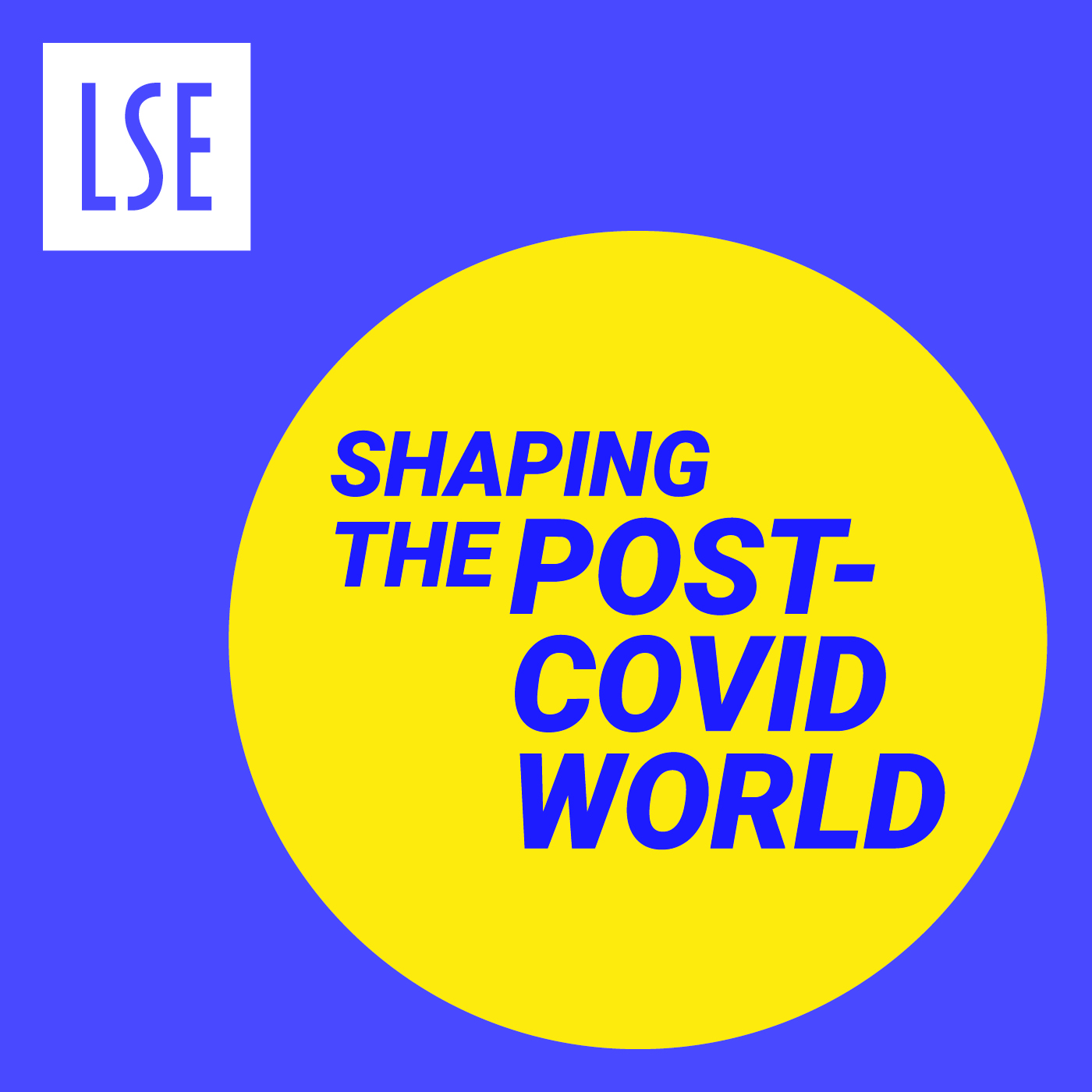 Shaping the Post-COVID WorldSHORTCAST | What We Owe Each Other: a new social contractContributor(s): Baroness Shafik, Juan Manuel Santos, Professor Amartya Sen | What should a social contract for the 21st century look like?
Launching her new book, What We Owe Each Other, LSE Director Minouche Shafik draws on evidence from across the globe to identify key principles for a social contract for every society. She will be in conversation with Juan Manuel Santos and Amartya Sen.
The social contract governs all aspects of society, from politics and law to our families and communities. Accelerating changes in technology, demography, climate and global health, as we have seen over the last year, will reshape...2021-04-0119 min
Shaping the Post-COVID WorldSHORTCAST | What We Owe Each Other: a new social contractContributor(s): Baroness Shafik, Juan Manuel Santos, Professor Amartya Sen | What should a social contract for the 21st century look like?
Launching her new book, What We Owe Each Other, LSE Director Minouche Shafik draws on evidence from across the globe to identify key principles for a social contract for every society. She will be in conversation with Juan Manuel Santos and Amartya Sen.
The social contract governs all aspects of society, from politics and law to our families and communities. Accelerating changes in technology, demography, climate and global health, as we have seen over the last year, will reshape...2021-04-0119 min Shaping the Post-COVID WorldTackling the COVID-19 Pandemic of Inequality to Build a Green, Inclusive, & Resilient RecoveryContributor(s): David R. Malpass | Join World Bank Group President David Malpass, ahead of the Spring Meetings, at the London School of Economics and Political Science as he discusses what is needed to build a green, inclusive, and resilient recovery from the pandemic. The crisis has worsened inequality and disproportionately impacted the poorest and most vulnerable, particularly women and children.
In his conversation with Minouche Shafik, Director of LSE, President Malpass will share his thoughts on accelerating a recovery that tackles growing inequalities and improves livelihoods.
Meet our speaker and chair
David R. Malpass (@DavidMalpassWBG) was selected as 13th President...2021-03-2957 min
Shaping the Post-COVID WorldTackling the COVID-19 Pandemic of Inequality to Build a Green, Inclusive, & Resilient RecoveryContributor(s): David R. Malpass | Join World Bank Group President David Malpass, ahead of the Spring Meetings, at the London School of Economics and Political Science as he discusses what is needed to build a green, inclusive, and resilient recovery from the pandemic. The crisis has worsened inequality and disproportionately impacted the poorest and most vulnerable, particularly women and children.
In his conversation with Minouche Shafik, Director of LSE, President Malpass will share his thoughts on accelerating a recovery that tackles growing inequalities and improves livelihoods.
Meet our speaker and chair
David R. Malpass (@DavidMalpassWBG) was selected as 13th President...2021-03-2957 min The InterviewBaroness Minouche Shafik: What do we owe each other?The idea of a social contract between the individual and the state is a staple of political philosophy. But what happens when that contract is threatened by forces beyond the control of any government, like a climate crisis or, right now, a global pandemic? Stephen Sackur speaks to Baroness Minouche Shafik, director of the London School of Economics and former top official at the World Bank. Is humanity capable of collective action to meet global challenges?2021-03-2222 min
The InterviewBaroness Minouche Shafik: What do we owe each other?The idea of a social contract between the individual and the state is a staple of political philosophy. But what happens when that contract is threatened by forces beyond the control of any government, like a climate crisis or, right now, a global pandemic? Stephen Sackur speaks to Baroness Minouche Shafik, director of the London School of Economics and former top official at the World Bank. Is humanity capable of collective action to meet global challenges?2021-03-2222 min Shaping the Post-COVID WorldHow Much is Your Health Worth? The Human and Economic Value of Health in the Era of COVID-19Contributor(s): Dr Tedros Adhanom Ghebreyesus, Professor Mariana Mazzucato, Dr Clare Wenham | As part of our online public events programme, we are pleased to invite you to a unique session with: Tedros Adhanom Ghebreyesus, Director-General, World Health Organization; Mariana Mazzucato, Chair of the WHO Council on the Economics of Health for All and Professor of the Economics of Innovation and Public Value at University College London (UCL) and author of Mission Economy: A Moonshot Guide to Changing Capitalism; and Clare Wenham, Assistant Professor of Global Health Policy at LSE.
The COVID-19 pandemic has posed extraordinary challenges to all sectors of...2021-03-171h 29
Shaping the Post-COVID WorldHow Much is Your Health Worth? The Human and Economic Value of Health in the Era of COVID-19Contributor(s): Dr Tedros Adhanom Ghebreyesus, Professor Mariana Mazzucato, Dr Clare Wenham | As part of our online public events programme, we are pleased to invite you to a unique session with: Tedros Adhanom Ghebreyesus, Director-General, World Health Organization; Mariana Mazzucato, Chair of the WHO Council on the Economics of Health for All and Professor of the Economics of Innovation and Public Value at University College London (UCL) and author of Mission Economy: A Moonshot Guide to Changing Capitalism; and Clare Wenham, Assistant Professor of Global Health Policy at LSE.
The COVID-19 pandemic has posed extraordinary challenges to all sectors of...2021-03-171h 29 Start the WeekRights and responsibilitiesThe journalist Matthew d’Ancona attacks the torpor and complacency which has come to dominate the political landscape. In Identity, Ignorance, Innovation he analyses what’s gone wrong in Britain from education and social care, to technological inequality. He tells Andrew Marr that far from demonising identity politics, the right needs to embrace a diversity of voices.But identity politics has become a major battleground in the culture wars in Britain and the US. The writer Kenan Malik has been charting its rise, and focuses his attention on the growing interest in ‘white identity’, and the debate around t...2021-03-1542 min
Start the WeekRights and responsibilitiesThe journalist Matthew d’Ancona attacks the torpor and complacency which has come to dominate the political landscape. In Identity, Ignorance, Innovation he analyses what’s gone wrong in Britain from education and social care, to technological inequality. He tells Andrew Marr that far from demonising identity politics, the right needs to embrace a diversity of voices.But identity politics has become a major battleground in the culture wars in Britain and the US. The writer Kenan Malik has been charting its rise, and focuses his attention on the growing interest in ‘white identity’, and the debate around t...2021-03-1542 min RSA EventsA new social contract for our timesThe social contract shapes everything: our political institutions, legal systems and material conditions, but also the organisation of family and community, our well-being, relationships and life prospects. And yet everywhere, the social contract is failing. At a time of global crisis, when we have an opportunity to think afresh about the future we want, visionary economist Minouche Shafik puts forward a new and hopeful framework for social, economic, and political recovery – one with profound implications for gender equality, education, healthcare provision and the future of work.Encouraging us to ask what we owe to each other – how w...2021-03-1243 min
RSA EventsA new social contract for our timesThe social contract shapes everything: our political institutions, legal systems and material conditions, but also the organisation of family and community, our well-being, relationships and life prospects. And yet everywhere, the social contract is failing. At a time of global crisis, when we have an opportunity to think afresh about the future we want, visionary economist Minouche Shafik puts forward a new and hopeful framework for social, economic, and political recovery – one with profound implications for gender equality, education, healthcare provision and the future of work.Encouraging us to ask what we owe to each other – how w...2021-03-1243 min Shaping the Post-COVID WorldSHORTCAST | Going for GrowthContributor(s): Professor John Van Reenen | How can the UK and the world get back to sustainable growth following the COVID-19 pandemic? Pulling together the lessons of 30 years of work on technology, management and productivity, John Van Reenen will argue that innovation is the key to rekindling our economies.
Meet our speaker and chair
John Van Reenen (@johnvanreenen) is Ronald Coase School Professor of Economics at the London School of Economics and Political Science and was previously Director of CEP from 2003-2016.
Minouche Shafik is Director of the London School of Economics and Political Science. Prior to this, she was...2021-03-1223 min
Shaping the Post-COVID WorldSHORTCAST | Going for GrowthContributor(s): Professor John Van Reenen | How can the UK and the world get back to sustainable growth following the COVID-19 pandemic? Pulling together the lessons of 30 years of work on technology, management and productivity, John Van Reenen will argue that innovation is the key to rekindling our economies.
Meet our speaker and chair
John Van Reenen (@johnvanreenen) is Ronald Coase School Professor of Economics at the London School of Economics and Political Science and was previously Director of CEP from 2003-2016.
Minouche Shafik is Director of the London School of Economics and Political Science. Prior to this, she was...2021-03-1223 min VINTAGE BOOKSWhat environmental legacy will we leave? ᛫ Minouche ShafikWhat will the environmental legacy which we leave for our grandchildren and great-grandchildren look like? In an extract from What We Owe Each Other by Minouche Shafik, one of the world's most influential economists and Director of the London School of Economics explores climate change and the social contract.You can find out more about What We Owe Each Other by Minouche Shafik here: bit.ly/whatweoweeachotherFollow us on Twitter @vintagebooks ᛫ Sign up to the Vintage newsletter to hear all about our new releases, see exclusive extracts and win prizes: sign up here ...2021-03-0715 min
VINTAGE BOOKSWhat environmental legacy will we leave? ᛫ Minouche ShafikWhat will the environmental legacy which we leave for our grandchildren and great-grandchildren look like? In an extract from What We Owe Each Other by Minouche Shafik, one of the world's most influential economists and Director of the London School of Economics explores climate change and the social contract.You can find out more about What We Owe Each Other by Minouche Shafik here: bit.ly/whatweoweeachotherFollow us on Twitter @vintagebooks ᛫ Sign up to the Vintage newsletter to hear all about our new releases, see exclusive extracts and win prizes: sign up here ...2021-03-0715 min Your Personal Storyteller - Full Audiobook at Your CommandWhat We Owe Each Other: A New Social Contract Audiobook by Minouche ShafikListen to this audiobook in full for free onhttps://hotaudiobook.com/freeID: 453972
Title: What We Owe Each Other: A New Social Contract
Author: Minouche Shafik
Narrator: Minouche Shafik
Format: Unabridged
Length: 06:55:40
Language: English
Release date: 03-04-21
Publisher: Penguin Books LTD
Genres: Business & Economics, Non-Fiction, Social Science, Business Development
Summary:
Brought to you by Penguin.
One of the world's most influential economists sets out the basis for a new social contract fit for the 21st century
The social contract shapes everything: our political institutions, legal systems and material conditions, but also the organisation of family and community, our well-being, relationships...2021-03-056h 55
Your Personal Storyteller - Full Audiobook at Your CommandWhat We Owe Each Other: A New Social Contract Audiobook by Minouche ShafikListen to this audiobook in full for free onhttps://hotaudiobook.com/freeID: 453972
Title: What We Owe Each Other: A New Social Contract
Author: Minouche Shafik
Narrator: Minouche Shafik
Format: Unabridged
Length: 06:55:40
Language: English
Release date: 03-04-21
Publisher: Penguin Books LTD
Genres: Business & Economics, Non-Fiction, Social Science, Business Development
Summary:
Brought to you by Penguin.
One of the world's most influential economists sets out the basis for a new social contract fit for the 21st century
The social contract shapes everything: our political institutions, legal systems and material conditions, but also the organisation of family and community, our well-being, relationships...2021-03-056h 55 Download Incredible Full Audiobooks in Non-Fiction, Social ScienceWhat We Owe Each Other: A New Social Contract by Minouche ShafikPlease visit https://thebookvoice.com/podcasts/1/audiobook/453972 to listen full audiobooks. Title: What We Owe Each Other: A New Social Contract Author: Minouche Shafik Narrator: Minouche Shafik Format: Unabridged Audiobook Length: 6 hours 55 minutes Release date: March 4, 2021 Ratings: Ratings of Book: 5 of Total 1 Ratings of Narrator: 5 of Total 1 Genres: Social Science Publisher's Summary: Brought to you by Penguin. One of the world's most influential economists sets out the basis for a new social contract fit for the 21st century The social contract shapes everything: our political institutions, legal systems and material conditions, but also the organisation of family and community, our...2021-03-0405 min
Download Incredible Full Audiobooks in Non-Fiction, Social ScienceWhat We Owe Each Other: A New Social Contract by Minouche ShafikPlease visit https://thebookvoice.com/podcasts/1/audiobook/453972 to listen full audiobooks. Title: What We Owe Each Other: A New Social Contract Author: Minouche Shafik Narrator: Minouche Shafik Format: Unabridged Audiobook Length: 6 hours 55 minutes Release date: March 4, 2021 Ratings: Ratings of Book: 5 of Total 1 Ratings of Narrator: 5 of Total 1 Genres: Social Science Publisher's Summary: Brought to you by Penguin. One of the world's most influential economists sets out the basis for a new social contract fit for the 21st century The social contract shapes everything: our political institutions, legal systems and material conditions, but also the organisation of family and community, our...2021-03-0405 min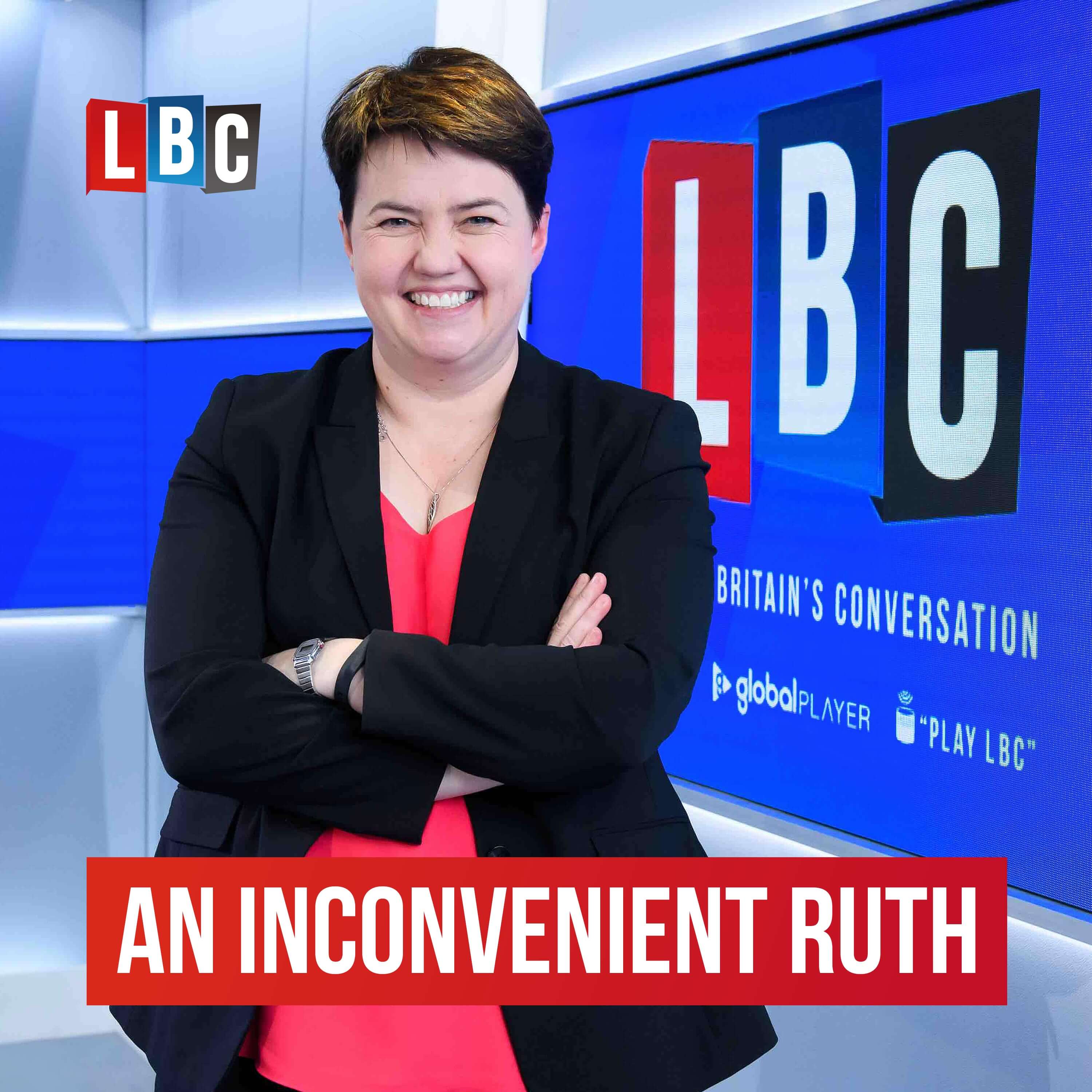 An Inconvenient RuthBaroness Minouche ShafikRuth speaks to LSE Director, Minouche Shafik2021-03-0146 min
An Inconvenient RuthBaroness Minouche ShafikRuth speaks to LSE Director, Minouche Shafik2021-03-0146 min Shaping the Post-COVID WorldWhat We Owe Each Other: a new social contractContributor(s): Baroness Shafik, Juan Manuel Santos, Professor Amartya Sen | What should a social contract for the 21st century look like?
Launching her new book, What We Owe Each Other, LSE Director Minouche Shafik draws on evidence from across the globe to identify key principles for a social contract for every society. She will be in conversation with Juan Manuel Santos and Amartya Sen.
The social contract governs all aspects of society, from politics and law to our families and communities. Accelerating changes in technology, demography, climate and global health, as we have seen over the last year, will reshape...2021-03-011h 22
Shaping the Post-COVID WorldWhat We Owe Each Other: a new social contractContributor(s): Baroness Shafik, Juan Manuel Santos, Professor Amartya Sen | What should a social contract for the 21st century look like?
Launching her new book, What We Owe Each Other, LSE Director Minouche Shafik draws on evidence from across the globe to identify key principles for a social contract for every society. She will be in conversation with Juan Manuel Santos and Amartya Sen.
The social contract governs all aspects of society, from politics and law to our families and communities. Accelerating changes in technology, demography, climate and global health, as we have seen over the last year, will reshape...2021-03-011h 22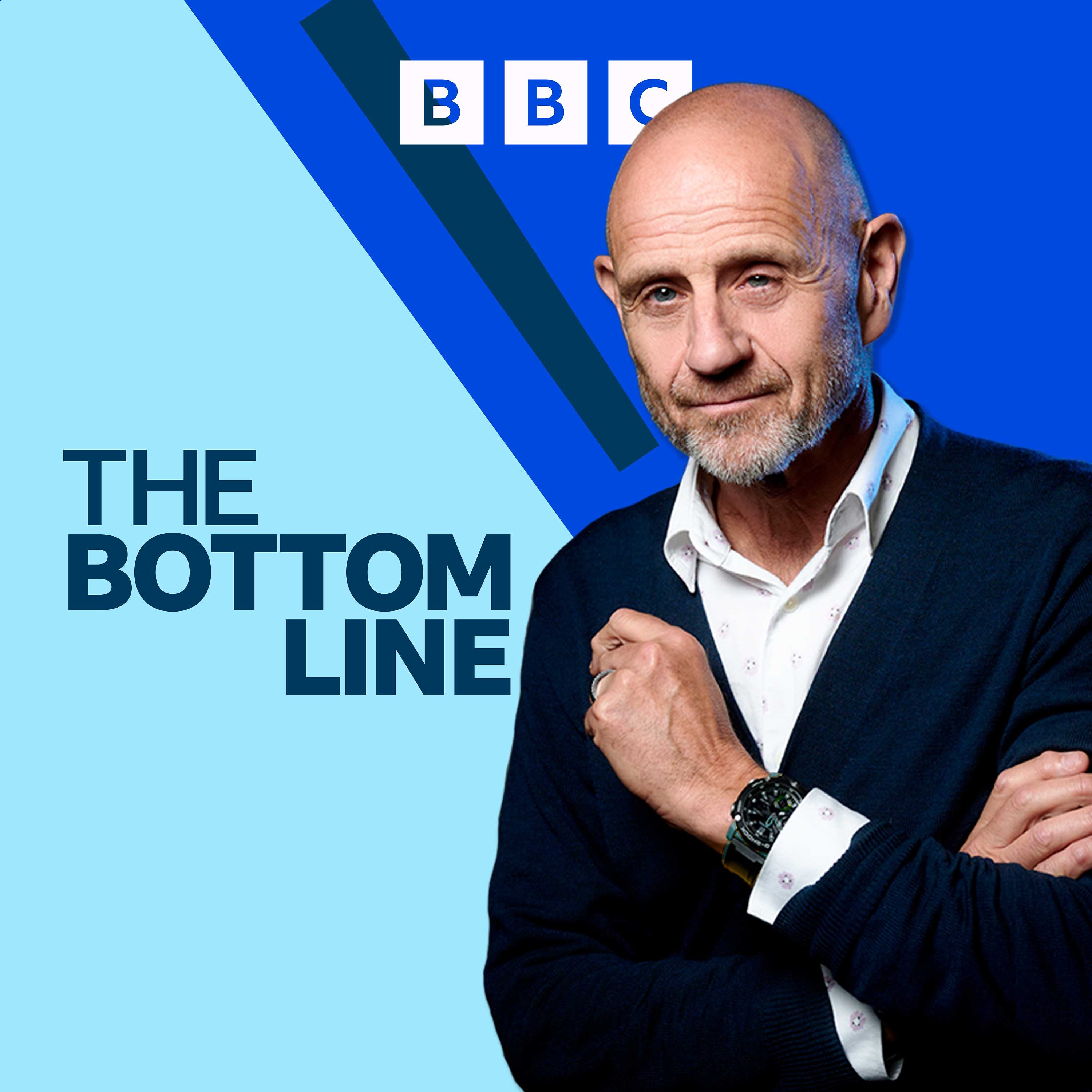 The Bottom LineThe Covid HangoverWhat are the long-term implications for the Covid crisis for the British economy. The government has borrowed more money over the last 12 months than ever before in peacetime. The ratio of public debt to national income is above 90%. If it rises even further do we need to worry? How will the chancellor manage the economic pain caused by coronavirus? What will it mean for tax and spending - and is there a route back to growth? Evan Davis and guests discuss.GUESTS
John Kay, economist, author, consultant
Dame Minouche Shafik, director of London School of Economics and...2021-02-1127 min
The Bottom LineThe Covid HangoverWhat are the long-term implications for the Covid crisis for the British economy. The government has borrowed more money over the last 12 months than ever before in peacetime. The ratio of public debt to national income is above 90%. If it rises even further do we need to worry? How will the chancellor manage the economic pain caused by coronavirus? What will it mean for tax and spending - and is there a route back to growth? Evan Davis and guests discuss.GUESTS
John Kay, economist, author, consultant
Dame Minouche Shafik, director of London School of Economics and...2021-02-1127 min Shaping the Post-COVID WorldGoing for GrowthContributor(s): Professor John Van Reenen | How can the UK and the world get back to sustainable growth following the COVID-19 pandemic? Pulling together the lessons of 30 years of work on technology, management and productivity, John Van Reenen will argue that innovation is the key to rekindling our economies.
Meet our speaker and chair
John Van Reenen (@johnvanreenen) is Ronald Coase School Professor of Economics at the London School of Economics and Political Science and was previously Director of CEP from 2003-2016.
Minouche Shafik is Director of the London School of Economics and Political Science. Prior to this, she was...2021-02-081h 06
Shaping the Post-COVID WorldGoing for GrowthContributor(s): Professor John Van Reenen | How can the UK and the world get back to sustainable growth following the COVID-19 pandemic? Pulling together the lessons of 30 years of work on technology, management and productivity, John Van Reenen will argue that innovation is the key to rekindling our economies.
Meet our speaker and chair
John Van Reenen (@johnvanreenen) is Ronald Coase School Professor of Economics at the London School of Economics and Political Science and was previously Director of CEP from 2003-2016.
Minouche Shafik is Director of the London School of Economics and Political Science. Prior to this, she was...2021-02-081h 06 the artisan podcastep15 | the artisan podcast | sarah caravalho khan | culture transformation leaderJoin us to hear Sarah Caravalho Khan, Culture Transformation Leader speak about empathy, culture, and the employee experience.
James Williams's book mentioned in the podcast can be found here and available as a free download from Cambridge Press.
You can find Sarah on Linkedin
You can find Katty on Linkedin
You can find Artisan Creative and on Linkedin.
Full transcript
Welcome to the Artisan Podcast. Where we explore creativity, inspiration, and the determination, it takes to be an Artisan. This podcast is for Artisans by Arti...2021-01-2538 min
the artisan podcastep15 | the artisan podcast | sarah caravalho khan | culture transformation leaderJoin us to hear Sarah Caravalho Khan, Culture Transformation Leader speak about empathy, culture, and the employee experience.
James Williams's book mentioned in the podcast can be found here and available as a free download from Cambridge Press.
You can find Sarah on Linkedin
You can find Katty on Linkedin
You can find Artisan Creative and on Linkedin.
Full transcript
Welcome to the Artisan Podcast. Where we explore creativity, inspiration, and the determination, it takes to be an Artisan. This podcast is for Artisans by Arti...2021-01-2538 min Shaping the Post-COVID WorldWarfare and Peacemaking in the 21st Century: who's taking responsibility to protect and promote peaceContributor(s): HRH The Countess of Wessex, Visaka Dharmadasa, Abir Haj Ibrahim |
In 2021, the UN Security Council’s Women, Peace and Security Agenda turns 21. The 20th anniversary year brought renewed commitments by member states, but the engine, ingenuity and commitment to this agenda has always come from the frontline peacebuilders, practitioners, and advocates.
In this, the first 'In Conversation with' event, the director of the LSE Centre for Women, Peace and Security, Sanam Naraghi Anderlini, will delve into the real world experiences and efforts to bring the vision and promise of the WPS agenda to life. Sanam will have an in...2021-01-191h 16
Shaping the Post-COVID WorldWarfare and Peacemaking in the 21st Century: who's taking responsibility to protect and promote peaceContributor(s): HRH The Countess of Wessex, Visaka Dharmadasa, Abir Haj Ibrahim |
In 2021, the UN Security Council’s Women, Peace and Security Agenda turns 21. The 20th anniversary year brought renewed commitments by member states, but the engine, ingenuity and commitment to this agenda has always come from the frontline peacebuilders, practitioners, and advocates.
In this, the first 'In Conversation with' event, the director of the LSE Centre for Women, Peace and Security, Sanam Naraghi Anderlini, will delve into the real world experiences and efforts to bring the vision and promise of the WPS agenda to life. Sanam will have an in...2021-01-191h 16 LSE Research channel | VideoLSE class of 2020Contributor(s): Minouche Shafik | Congratulations to the class of 2020! LSE Director Minouche Shafik shares her message to students graduating in this exceptional year.2020-12-1102 min
LSE Research channel | VideoLSE class of 2020Contributor(s): Minouche Shafik | Congratulations to the class of 2020! LSE Director Minouche Shafik shares her message to students graduating in this exceptional year.2020-12-1102 min Shaping the Post-COVID WorldMaking Wellbeing the GoalContributor(s): Baroness Tyler, Lord O'Donnell, Professor Lord Layard, Alan Jope |
This 30th Anniversary CEP event will ask can wellbeing become the focus for social science? How would this change economics and policy analysis? How would it change policy priorities for a post-Covid-19 world?
Alan Jope (@alanjope) was appointed CEO of Unilever in 2019, and has worked for the company in North America for 14 years and in Asia for 13 years.
Richard Layard (@RichardLayard) is Emeritus Professor of Economics at the London School of Economics and Political Science and currently heads the CEP's Wellbeing Research Programme.
Gus O'Donnell (@Gus_ODonnell) was Cabinet...2020-11-261h 03
Shaping the Post-COVID WorldMaking Wellbeing the GoalContributor(s): Baroness Tyler, Lord O'Donnell, Professor Lord Layard, Alan Jope |
This 30th Anniversary CEP event will ask can wellbeing become the focus for social science? How would this change economics and policy analysis? How would it change policy priorities for a post-Covid-19 world?
Alan Jope (@alanjope) was appointed CEO of Unilever in 2019, and has worked for the company in North America for 14 years and in Asia for 13 years.
Richard Layard (@RichardLayard) is Emeritus Professor of Economics at the London School of Economics and Political Science and currently heads the CEP's Wellbeing Research Programme.
Gus O'Donnell (@Gus_ODonnell) was Cabinet...2020-11-261h 03 Shaping the Post-COVID WorldThe Active Ingredient of InequalityContributor(s): Professor Francisco Ferreira |
Around the world, people’s life chances are powerfully shaped by their race, gender, place of birth and family background. Two individuals born in the same city and on the same day may turn out to have very different schooling opportunities, to meet with different treatment by the police and other state institutions, and to face different job market conditions, depending on the neighbourhoods and families they were born into.
In this lecture, Professor Ferreira will discuss how (some) economists have come to define, model and measure inequality of opportunity, and why it can be se...2020-10-261h 00
Shaping the Post-COVID WorldThe Active Ingredient of InequalityContributor(s): Professor Francisco Ferreira |
Around the world, people’s life chances are powerfully shaped by their race, gender, place of birth and family background. Two individuals born in the same city and on the same day may turn out to have very different schooling opportunities, to meet with different treatment by the police and other state institutions, and to face different job market conditions, depending on the neighbourhoods and families they were born into.
In this lecture, Professor Ferreira will discuss how (some) economists have come to define, model and measure inequality of opportunity, and why it can be se...2020-10-261h 00 Shaping the Post-COVID WorldA World Safe for DemocracyContributor(s): Professor G. John Ikenberry, Dr Leslie Vinjamuri, Minouche Shafik | For the last two hundred years, the liberal internationalist project has built towards an open, rules based, progressive world. Outside threats from illiberal challengers and from the inside by nationalist populist movements now mean the project is in crisis. G. John Ikenberry will discuss the history of liberal internationalism and will argue for its continued relevance as a force to protect liberal democracy in a twenty first century marked by rising economic and security interdependence.
G. John Ikenberry is the Albert G. Milbank Professor of Politics and International Affairs...2020-10-081h 28
Shaping the Post-COVID WorldA World Safe for DemocracyContributor(s): Professor G. John Ikenberry, Dr Leslie Vinjamuri, Minouche Shafik | For the last two hundred years, the liberal internationalist project has built towards an open, rules based, progressive world. Outside threats from illiberal challengers and from the inside by nationalist populist movements now mean the project is in crisis. G. John Ikenberry will discuss the history of liberal internationalism and will argue for its continued relevance as a force to protect liberal democracy in a twenty first century marked by rising economic and security interdependence.
G. John Ikenberry is the Albert G. Milbank Professor of Politics and International Affairs...2020-10-081h 28 The Recovery ProjectThe Recovery Summit: Inclusive SocietiesListen to a recording of Day 2: Inclusive Societies, of The Recovery Summit, a virtual, world-wide conference focused on charting the path to global recovery from COVID-19.
We were joined by Sadiq Khan, the Mayor of London and the Recovery Summit Co-Chair for Inclusive Societies, Lori Lightfoot, the Mayor of Chicago, and Baroness Minouche Shafik, the Director of the London School of Economics, moderated by Zubaida Haque, the former Interim Director of the Runnymede Trust and Independent SAGE.2020-09-3000 min
The Recovery ProjectThe Recovery Summit: Inclusive SocietiesListen to a recording of Day 2: Inclusive Societies, of The Recovery Summit, a virtual, world-wide conference focused on charting the path to global recovery from COVID-19.
We were joined by Sadiq Khan, the Mayor of London and the Recovery Summit Co-Chair for Inclusive Societies, Lori Lightfoot, the Mayor of Chicago, and Baroness Minouche Shafik, the Director of the London School of Economics, moderated by Zubaida Haque, the former Interim Director of the Runnymede Trust and Independent SAGE.2020-09-3000 min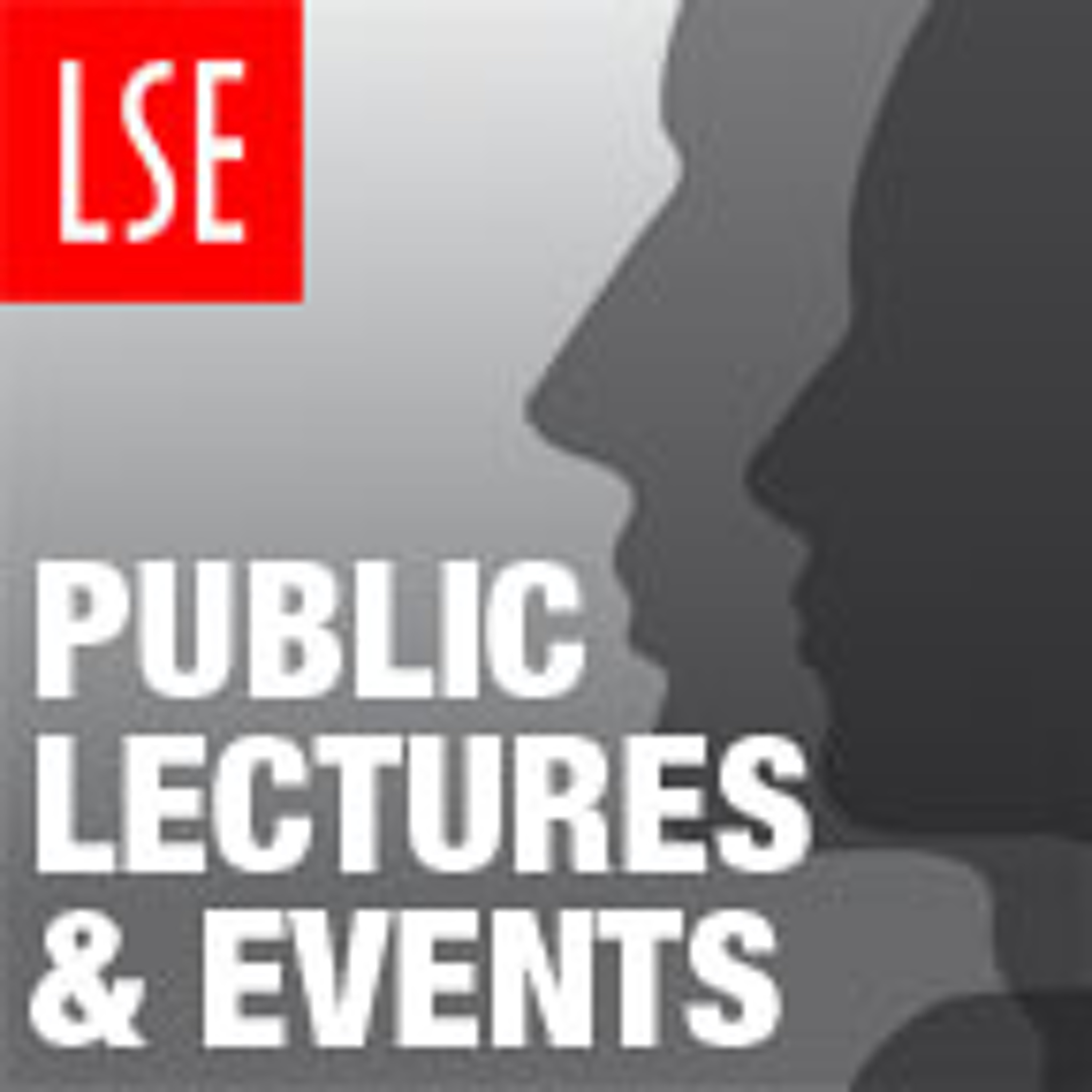 LSE PodcastsLife After COVID-19: challenges and policy response [Audio]Speaker(s): Michelle Bachelet, Helen Clark, Matteo Renzi, Kevin Rudd, Minouche Shafik | Listen to this discussion on life after COVID-19 with the former leaders of Australia, Chile, Italy and New Zealand. Michelle Bachelet (@mbachelet) is the current United Nations High Commissioner for Human Rights. Ms Bachelet was elected President of Chile on two occasions (2006–2010 and 2014–2018). She was the first female president of Chile. She also served as Health Minister (2000-2002) as well as Chile’s and Latin America’s first female Defence Minister (2002–2004). Helen Clark (@HelenClarkNZ) is a global leader on sustainable development, gender equality and international co-operation. She served three succ...2020-06-261h 29
LSE PodcastsLife After COVID-19: challenges and policy response [Audio]Speaker(s): Michelle Bachelet, Helen Clark, Matteo Renzi, Kevin Rudd, Minouche Shafik | Listen to this discussion on life after COVID-19 with the former leaders of Australia, Chile, Italy and New Zealand. Michelle Bachelet (@mbachelet) is the current United Nations High Commissioner for Human Rights. Ms Bachelet was elected President of Chile on two occasions (2006–2010 and 2014–2018). She was the first female president of Chile. She also served as Health Minister (2000-2002) as well as Chile’s and Latin America’s first female Defence Minister (2002–2004). Helen Clark (@HelenClarkNZ) is a global leader on sustainable development, gender equality and international co-operation. She served three succ...2020-06-261h 29 ICH WIR ALLE. Selbst + Team + Werte-Entwicklung[Maike] Daniel Rieber: Mindful Leadership trifft VUCA Welt1h 21 Minuten Inspiration 💡😃
Minouche Shafik, die Direktorin der London School of Economics, sagte auch: "Früher ging es bei Jobs um Muskeln, jetzt geht es um das Gehirn, aber in Zukunft wird es um das Herz gehen".
Daniel unterstützt als Mindfulness Coach Mitarbeiter von Axel Springer, Soundcloud oder Twitter. Für ihn ist Achtsamkeit der Weg, der Menschen und Unternehmen erfolgreich in diese unsicheren Zeiten führt.
Er berichtet einerseits von seiner praktischen Erfahrung in großen Unternehmen, den messbaren Effekten des Mindfulness Coachings und wir reflektieren gemeinsam über die persönlichen Auswirkungen von Selbstreflexi...2020-05-081h 21
ICH WIR ALLE. Selbst + Team + Werte-Entwicklung[Maike] Daniel Rieber: Mindful Leadership trifft VUCA Welt1h 21 Minuten Inspiration 💡😃
Minouche Shafik, die Direktorin der London School of Economics, sagte auch: "Früher ging es bei Jobs um Muskeln, jetzt geht es um das Gehirn, aber in Zukunft wird es um das Herz gehen".
Daniel unterstützt als Mindfulness Coach Mitarbeiter von Axel Springer, Soundcloud oder Twitter. Für ihn ist Achtsamkeit der Weg, der Menschen und Unternehmen erfolgreich in diese unsicheren Zeiten führt.
Er berichtet einerseits von seiner praktischen Erfahrung in großen Unternehmen, den messbaren Effekten des Mindfulness Coachings und wir reflektieren gemeinsam über die persönlichen Auswirkungen von Selbstreflexi...2020-05-081h 21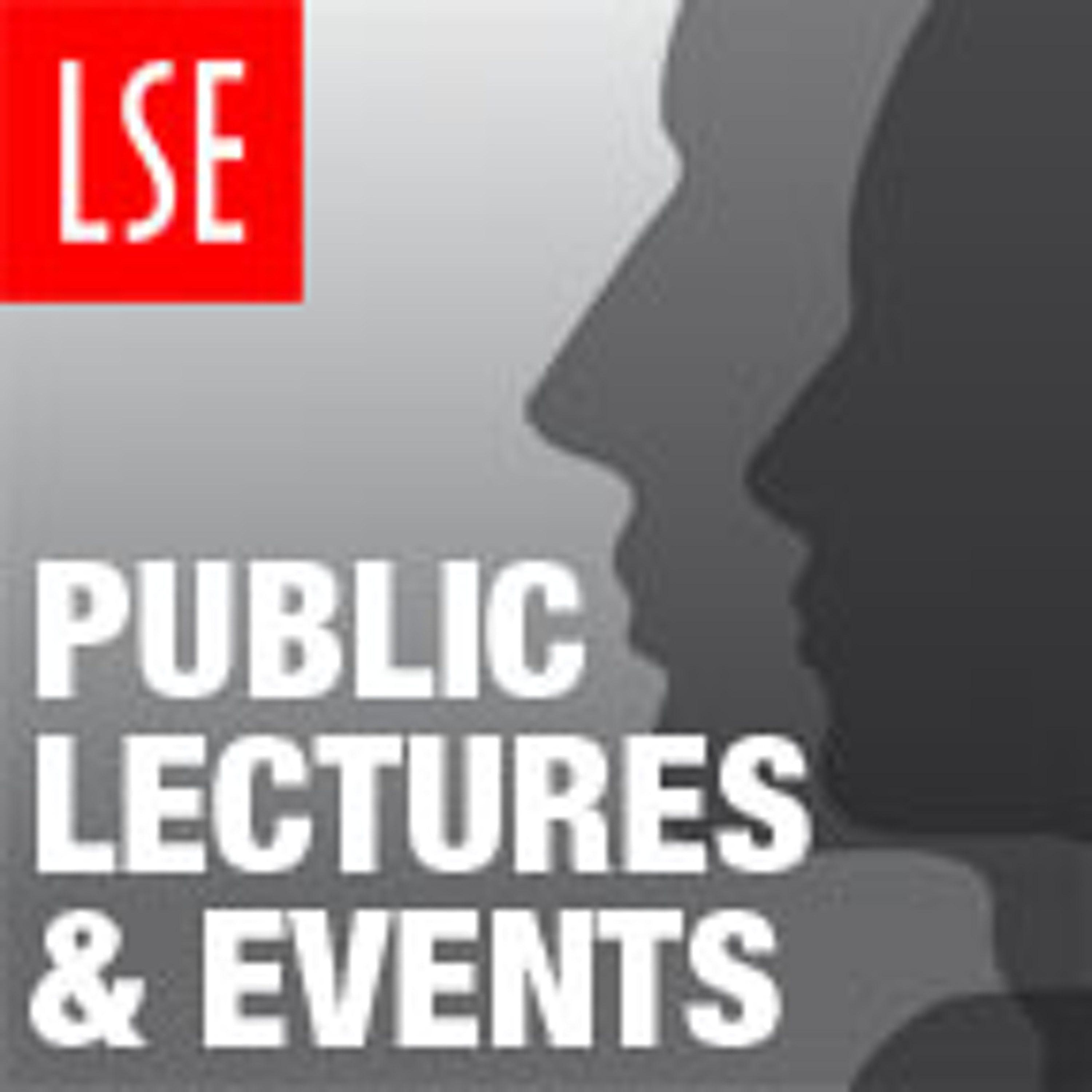 LSE PodcastsThe Economics of Biodiversity [Audio]Speaker(s): Professor Sir Partha Dasgupta | Humanity has prospered immensely in recent decades, but this has been coupled with profound impacts on biodiversity. This presents significant risks to our economies and way of life, as well as those of future generations. Partha Dasgupta is leading an independent, global review on the Economics of Biodiversity, commissioned by HM Treasury. The final Review will report in the autumn, and ahead of the COP15 international biodiversity summit due to take place in Kunming, China, where new long-term biodiversity targets will be agreed, and ahead of the COP26 climate summit. Minouche Shafik will discuss...2020-05-0754 min
LSE PodcastsThe Economics of Biodiversity [Audio]Speaker(s): Professor Sir Partha Dasgupta | Humanity has prospered immensely in recent decades, but this has been coupled with profound impacts on biodiversity. This presents significant risks to our economies and way of life, as well as those of future generations. Partha Dasgupta is leading an independent, global review on the Economics of Biodiversity, commissioned by HM Treasury. The final Review will report in the autumn, and ahead of the COP15 international biodiversity summit due to take place in Kunming, China, where new long-term biodiversity targets will be agreed, and ahead of the COP26 climate summit. Minouche Shafik will discuss...2020-05-0754 min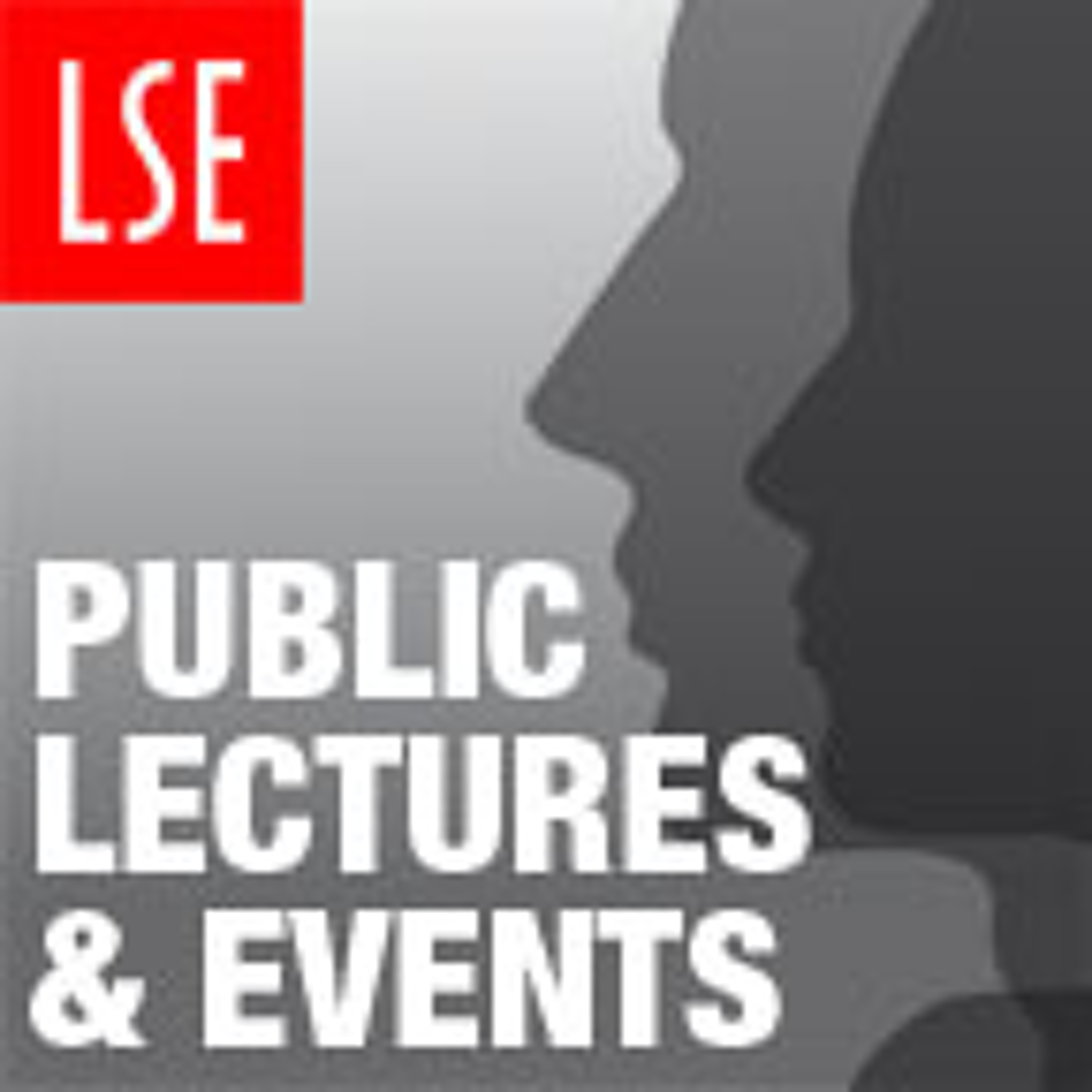 LSE PodcastsNow or Never: Crafting the Global COVID-19 Response [Audio]Speaker(s): Gordon Brown, Minouche Shafik, Professor Lawrence Summers, Professor Andrés Velasco | This unprecedented global crisis requires an unprecedented global response. The first contours of such a response are slowly emerging, but there are important missing pieces and the speed and scale are not sufficient. Most of the measures taken so far have come from the international financial institutions, with the G20 Leaders slowly catching up. The G20 Finance Ministers meeting and the IMF Spring meetings took place last week and we know have a G20 Action Plan. Regional leaders have also taken steps to address the crisis in t...2020-04-211h 21
LSE PodcastsNow or Never: Crafting the Global COVID-19 Response [Audio]Speaker(s): Gordon Brown, Minouche Shafik, Professor Lawrence Summers, Professor Andrés Velasco | This unprecedented global crisis requires an unprecedented global response. The first contours of such a response are slowly emerging, but there are important missing pieces and the speed and scale are not sufficient. Most of the measures taken so far have come from the international financial institutions, with the G20 Leaders slowly catching up. The G20 Finance Ministers meeting and the IMF Spring meetings took place last week and we know have a G20 Action Plan. Regional leaders have also taken steps to address the crisis in t...2020-04-211h 21 Beaver SoundLSE Limelight #14: LSE in a new decade with Director Shafik“There are pre-existing mechanisms where people can give feedback if they have concerns about their roles. I think that's the proper way of dealing with these issues rather than insinuations and allegations.” – Dame Minouche Shafik, Director of LSE.
In this episode of LSE Limelight, we talk to Director Shafik about the LSE in a new decade by examining the three pillars of the 2030 Shape the World strategy. We talk about climate education at LSE, donations from organisations with ties to authoritarianism and her reaction to The Beaver's reporting on the experiences of LSE cleaners.
Presented and produc...2020-03-0929 min
Beaver SoundLSE Limelight #14: LSE in a new decade with Director Shafik“There are pre-existing mechanisms where people can give feedback if they have concerns about their roles. I think that's the proper way of dealing with these issues rather than insinuations and allegations.” – Dame Minouche Shafik, Director of LSE.
In this episode of LSE Limelight, we talk to Director Shafik about the LSE in a new decade by examining the three pillars of the 2030 Shape the World strategy. We talk about climate education at LSE, donations from organisations with ties to authoritarianism and her reaction to The Beaver's reporting on the experiences of LSE cleaners.
Presented and produc...2020-03-0929 min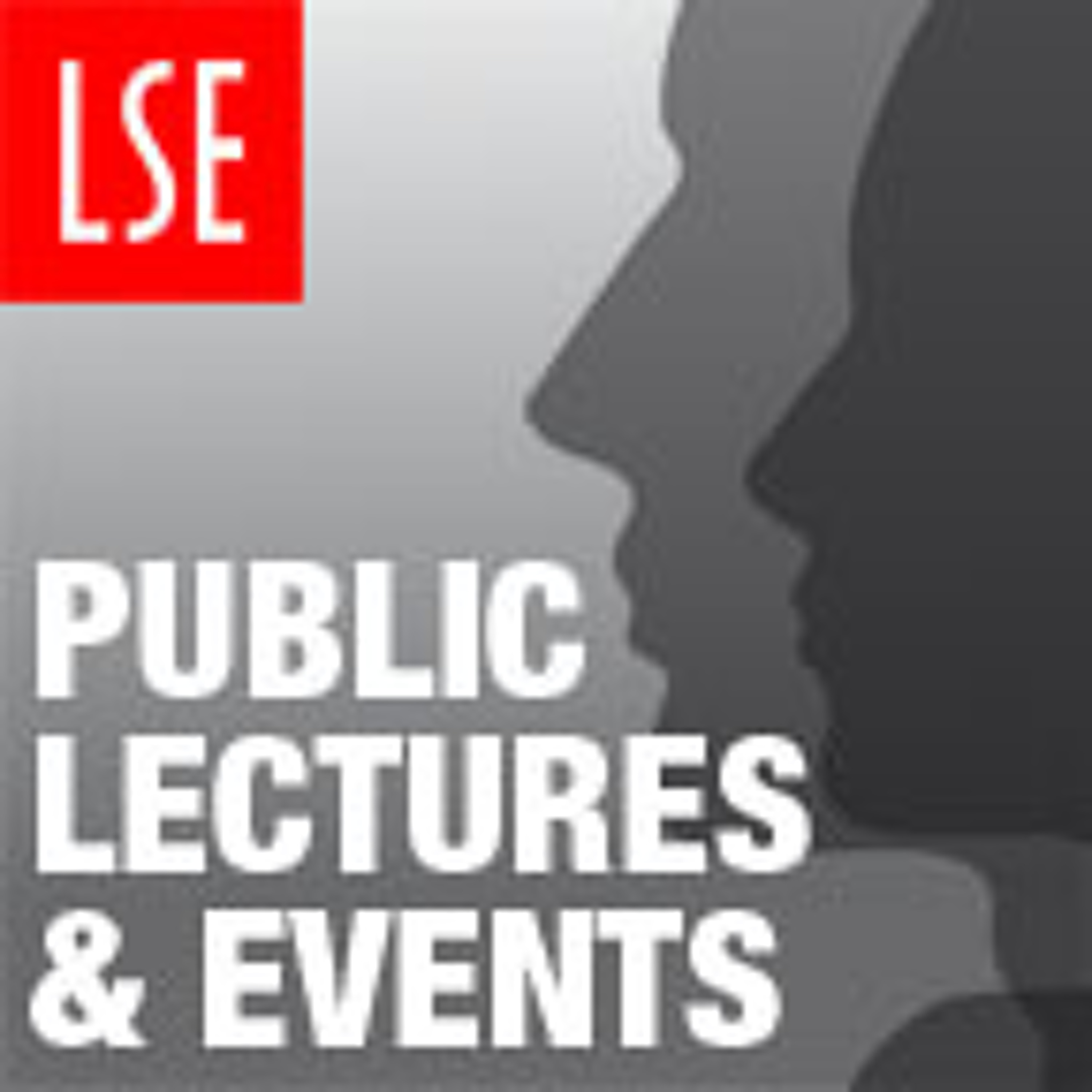 LSE PodcastsBuilding a World Fit for Future Generations [Audio]Speaker(s): Dr Gro Harlem Brundtland, Juan Manuel Santos Calderón | Around the world we see stark reminders of increasing division within and between nations and a vacuum of moral leadership committed to addressing the root causes of democratic deficits. Join us as we explore how this generation of rising grassroots leaders are tackling our challenges through collective purpose, changing culture and policy, and how leaders from across the generations can support and amplify them. Gro Harlem Brundtland was the first woman Prime Minister of Norway, serving for more than 10 years over three terms until 1996. Following this she was Director-General o...2019-10-291h 52
LSE PodcastsBuilding a World Fit for Future Generations [Audio]Speaker(s): Dr Gro Harlem Brundtland, Juan Manuel Santos Calderón | Around the world we see stark reminders of increasing division within and between nations and a vacuum of moral leadership committed to addressing the root causes of democratic deficits. Join us as we explore how this generation of rising grassroots leaders are tackling our challenges through collective purpose, changing culture and policy, and how leaders from across the generations can support and amplify them. Gro Harlem Brundtland was the first woman Prime Minister of Norway, serving for more than 10 years over three terms until 1996. Following this she was Director-General o...2019-10-291h 52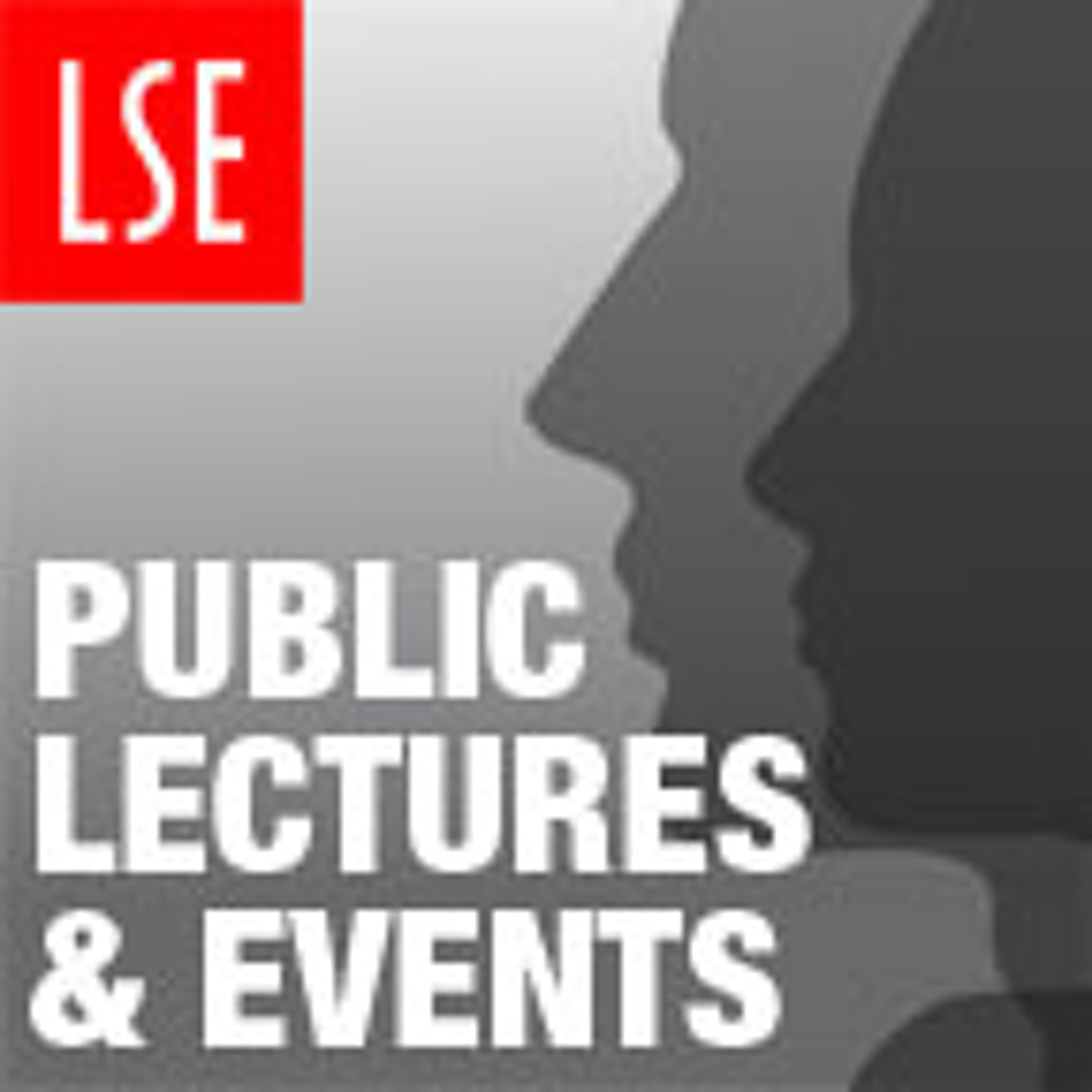 LSE PodcastsCapitalism, Alone: the future of the system that rules the world [Audio]Speaker(s): Professor Branko Milanovic | We are all capitalists now. For the first time in human history, the globe is dominated by one economic system. In his book Capitalism, Alone, which he will discuss in this lecture, economist Branko Milanovic explains the reasons for this decisive historical shift since the days of feudalism and, later, communism. Surveying the varieties of capitalism, he asks: What are the prospects for a fairer world now that capitalism is the only game in town? His conclusions are sobering, but not fatalistic. Branko Milanovic explains how capitalism gets much wrong, but also much right—and it...2019-10-231h 23
LSE PodcastsCapitalism, Alone: the future of the system that rules the world [Audio]Speaker(s): Professor Branko Milanovic | We are all capitalists now. For the first time in human history, the globe is dominated by one economic system. In his book Capitalism, Alone, which he will discuss in this lecture, economist Branko Milanovic explains the reasons for this decisive historical shift since the days of feudalism and, later, communism. Surveying the varieties of capitalism, he asks: What are the prospects for a fairer world now that capitalism is the only game in town? His conclusions are sobering, but not fatalistic. Branko Milanovic explains how capitalism gets much wrong, but also much right—and it...2019-10-231h 23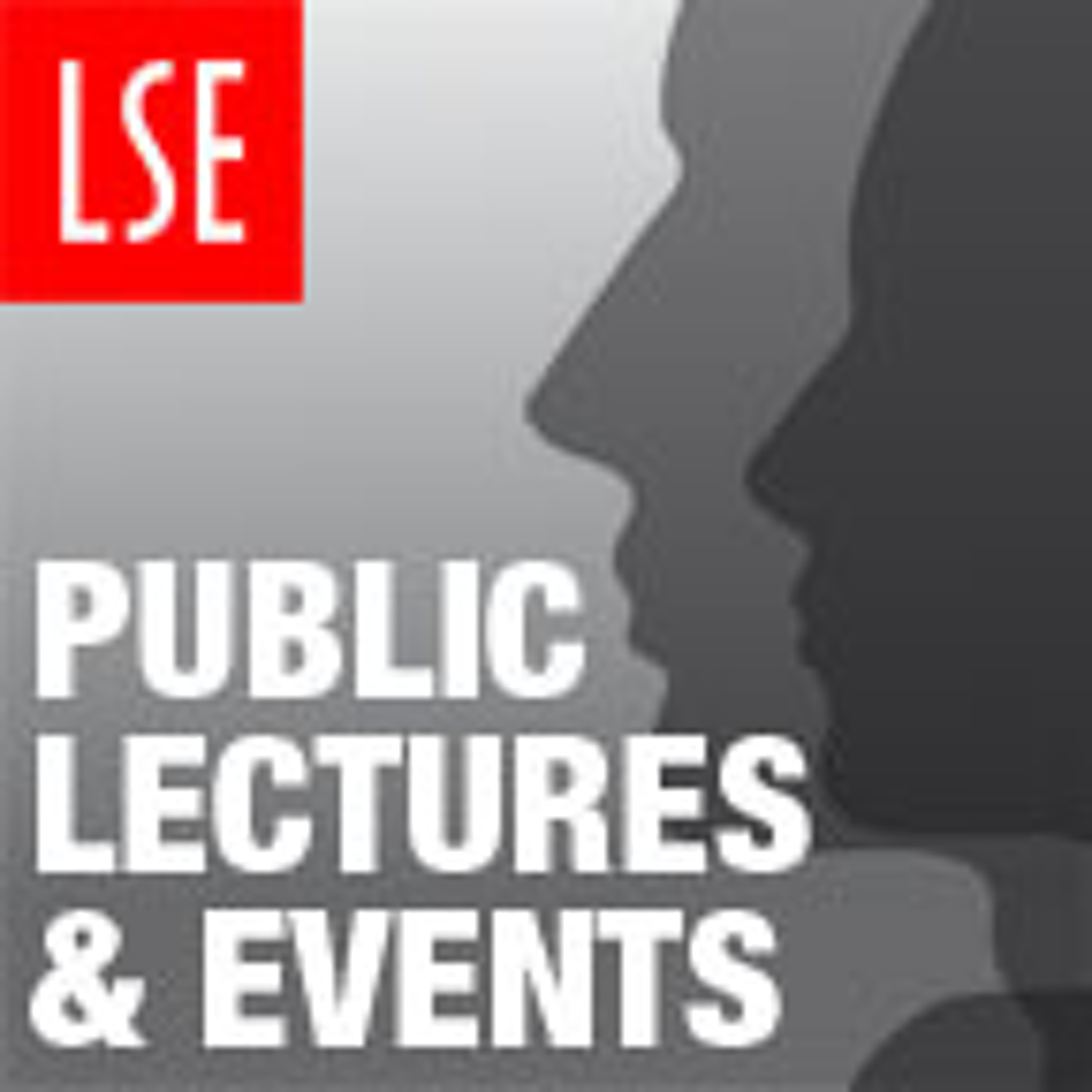 LSE PodcastsAcademic Impact on World Order – The Power of Ideas [Audio]Speaker(s): Laura Diaz Anadon, Patrick Milton, Minouche Shafik, Aino Rosa Kristina Spohr, Nicholas Stern, Geraint Thomas | This event marks the 80th Anniversary of the war-time evacuation of LSE to Peterhouse. Laura Diaz Anadon is Professor of Climate Change Policy at the University of Cambridge. Former BBC Correspondent, Bridget Kendall was appointed the first female Master of Peterhouse, the University of Cambridge's oldest College, in 2016. Patrick Milton, Research Fellow at Peterhouse, Cambridge and a historian of early modern Europe Minouche Shafik is Director of the London School of Economics and Political Science. Prior to this she was Deputy Governor of...2019-09-261h 30
LSE PodcastsAcademic Impact on World Order – The Power of Ideas [Audio]Speaker(s): Laura Diaz Anadon, Patrick Milton, Minouche Shafik, Aino Rosa Kristina Spohr, Nicholas Stern, Geraint Thomas | This event marks the 80th Anniversary of the war-time evacuation of LSE to Peterhouse. Laura Diaz Anadon is Professor of Climate Change Policy at the University of Cambridge. Former BBC Correspondent, Bridget Kendall was appointed the first female Master of Peterhouse, the University of Cambridge's oldest College, in 2016. Patrick Milton, Research Fellow at Peterhouse, Cambridge and a historian of early modern Europe Minouche Shafik is Director of the London School of Economics and Political Science. Prior to this she was Deputy Governor of...2019-09-261h 30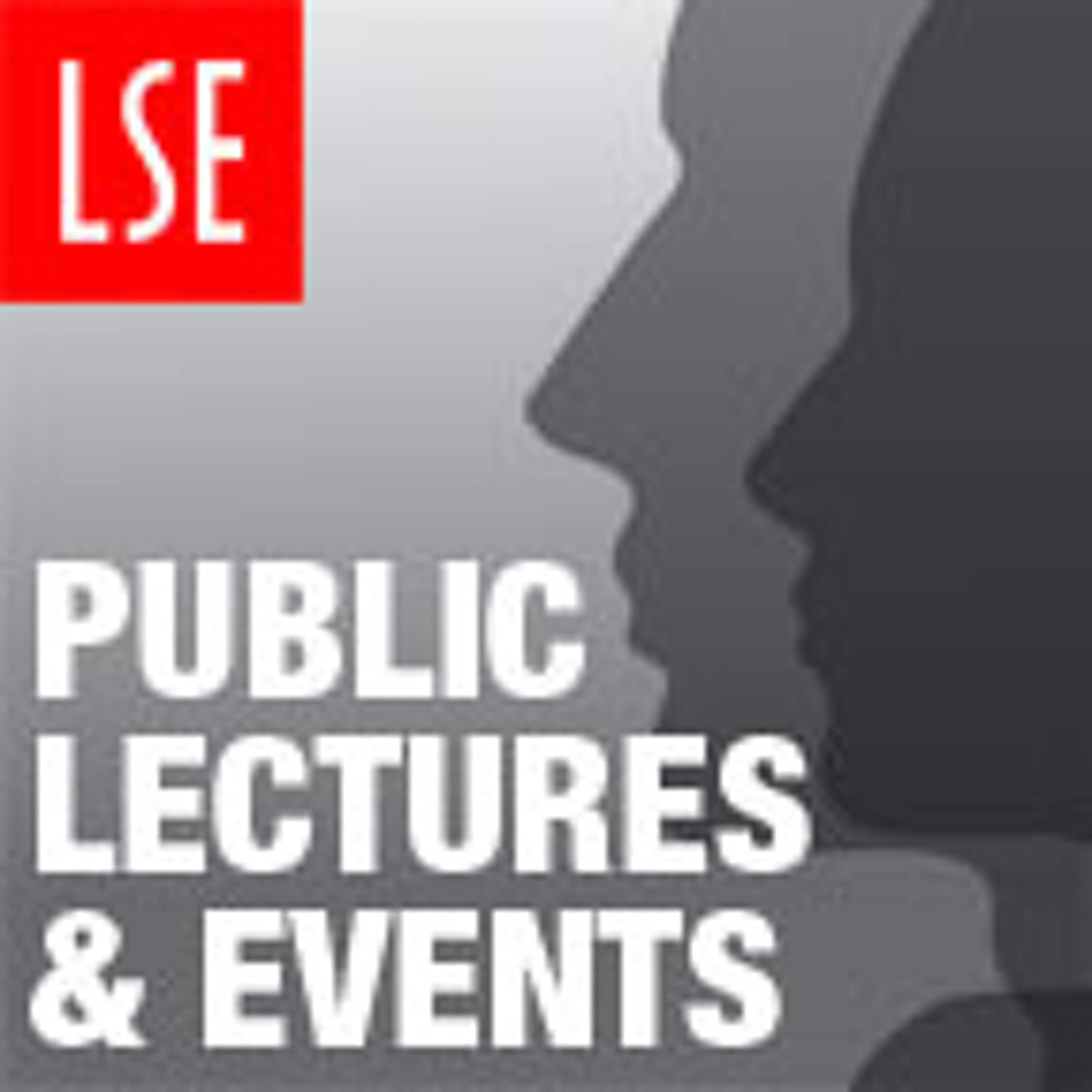 LSE PodcastsUnderstand Today, Shape Tomorrow [Audio]Speaker(s): Ruth Porat | LSE is delighted to welcome back to campus alumna Ruth Porat (MSc Industrial Relations 1981), Senior Vice President and Chief Financial Officer of Alphabet and Google to take part in the launch of LSE 2030, our strategy to shape the world. LSE Director, Minouche Shafik (MSc Economics 1986) and Ruth will take part in a fireside chat about the role of LSE and how it can shape the world in turbulent times of economic uncertainty and social transformations. Their discussion will also touch on the importance of diversity, lifelong learning and Ruth’s own career path from her time as...2019-09-1942 min
LSE PodcastsUnderstand Today, Shape Tomorrow [Audio]Speaker(s): Ruth Porat | LSE is delighted to welcome back to campus alumna Ruth Porat (MSc Industrial Relations 1981), Senior Vice President and Chief Financial Officer of Alphabet and Google to take part in the launch of LSE 2030, our strategy to shape the world. LSE Director, Minouche Shafik (MSc Economics 1986) and Ruth will take part in a fireside chat about the role of LSE and how it can shape the world in turbulent times of economic uncertainty and social transformations. Their discussion will also touch on the importance of diversity, lifelong learning and Ruth’s own career path from her time as...2019-09-1942 min Melissa & Lori Love Literacy ™Episode 6: The Heart of the CurriculumMelissa was inspired by a quote in Brene Brown's book: Dare to Lead https://daretolead.brenebrown.com/. Minouche Shafik, Director of the London School of Economics, who said, “In the past, jobs were about muscles, now they’re about brains, but in the future they’ll be about the heart.” Listen to her insightful and relatable take on curriculum with heart. Visit OUR WEBSITE to subscribe to our newsletter and podcast! https://www.literacypodcast.com/Connect with Melissa & Lori:TwitterInstagramFaceb...2019-06-1708 min
Melissa & Lori Love Literacy ™Episode 6: The Heart of the CurriculumMelissa was inspired by a quote in Brene Brown's book: Dare to Lead https://daretolead.brenebrown.com/. Minouche Shafik, Director of the London School of Economics, who said, “In the past, jobs were about muscles, now they’re about brains, but in the future they’ll be about the heart.” Listen to her insightful and relatable take on curriculum with heart. Visit OUR WEBSITE to subscribe to our newsletter and podcast! https://www.literacypodcast.com/Connect with Melissa & Lori:TwitterInstagramFaceb...2019-06-1708 min VoxTalks EconomicsThe future of the welfare stateThis week UN special rapporteur claimed the UK's social safety net has been "replaced with a harsh and uncaring ethos". Dame Minouche Shafik, director of the LSE, talks to Tim Phillips about whether our welfare states can survive in their current form, and what might replace them.
Image: Gerd Altmann2019-06-0717 min
VoxTalks EconomicsThe future of the welfare stateThis week UN special rapporteur claimed the UK's social safety net has been "replaced with a harsh and uncaring ethos". Dame Minouche Shafik, director of the LSE, talks to Tim Phillips about whether our welfare states can survive in their current form, and what might replace them.
Image: Gerd Altmann2019-06-0717 min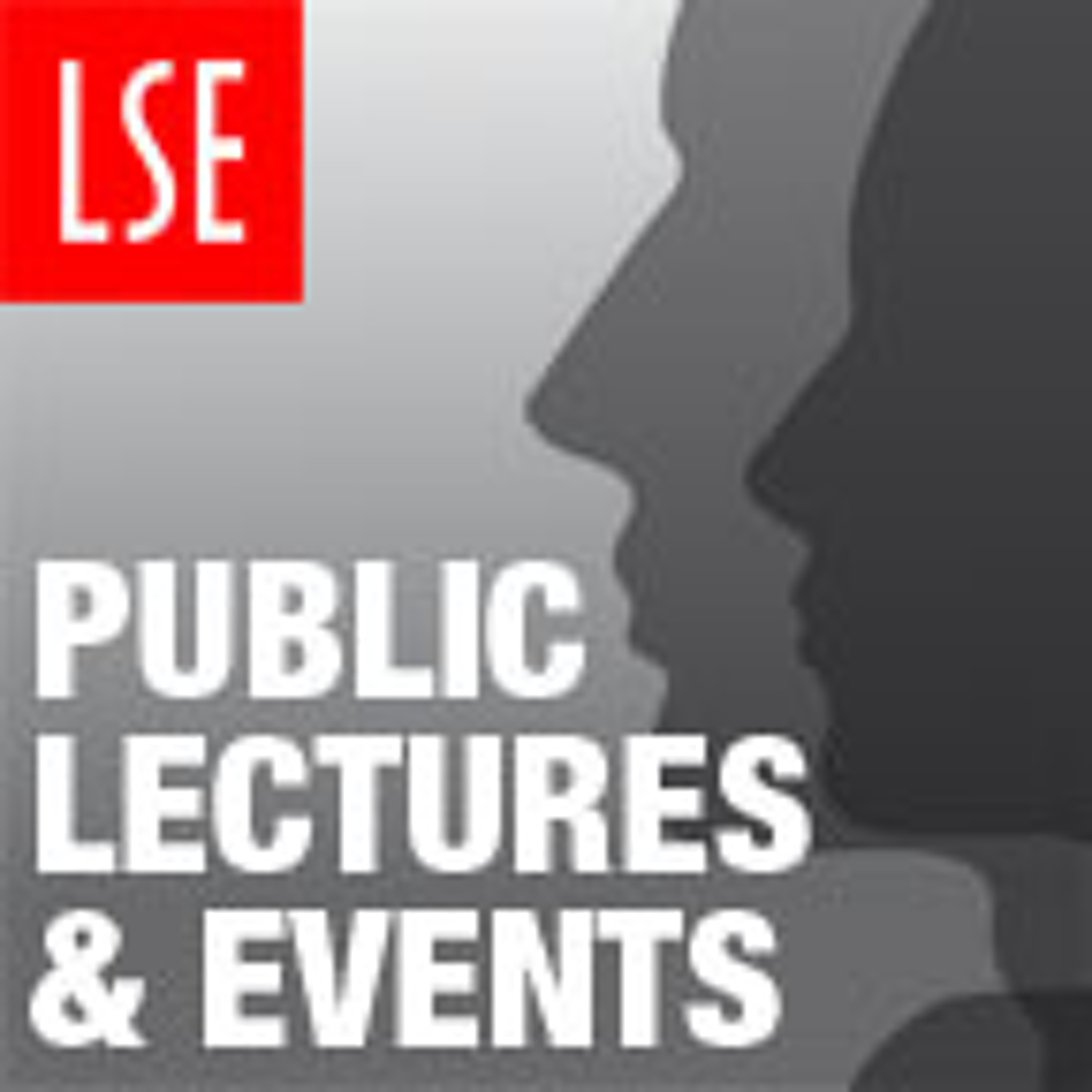 LSE PodcastsLSE Festival 2019 | Pessimism and the State of the World [Audio]Speaker(s): Minouche Shafik, Professor Andrés Velasco | Why are people in some of the richest countries in the world so miserable when so much of the economic and social data show massive material progress? Where did all that anger and anxiety come from that is manifested in populism, terrorism, and worsening well-being and mental health? Are we, despite the massive gains in material progress in recent decades, living in an age of insecurity? Minouche Shafik is Director of the London School of Economics and Political Science. Prior to this she was Deputy Governor of the Bank of England. Andrés...2019-02-251h 20
LSE PodcastsLSE Festival 2019 | Pessimism and the State of the World [Audio]Speaker(s): Minouche Shafik, Professor Andrés Velasco | Why are people in some of the richest countries in the world so miserable when so much of the economic and social data show massive material progress? Where did all that anger and anxiety come from that is manifested in populism, terrorism, and worsening well-being and mental health? Are we, despite the massive gains in material progress in recent decades, living in an age of insecurity? Minouche Shafik is Director of the London School of Economics and Political Science. Prior to this she was Deputy Governor of the Bank of England. Andrés...2019-02-251h 20 On The Pulse#2 A Prince, A Rockstar And Minouche Shafik Walk Into A Bar... (Ft. Prof David Graeber) A prince, a rockstar, and LSE director Minouche Shafik walk into a bar.
It happened last week, at Davos. Well, we’re not sure about the bar part.
Still, we wonder: what happens at Davos? Is it truly the annual meeting of neoliberals patting each other on the backs, or do we owe some of our important political achievements to these kind of informal meetings with Bono?
We talk to David Graeber, anthropology professor and just back in London after spending time with the Gilets Jaunes. What is his perception of the ma...2019-01-3133 min
On The Pulse#2 A Prince, A Rockstar And Minouche Shafik Walk Into A Bar... (Ft. Prof David Graeber) A prince, a rockstar, and LSE director Minouche Shafik walk into a bar.
It happened last week, at Davos. Well, we’re not sure about the bar part.
Still, we wonder: what happens at Davos? Is it truly the annual meeting of neoliberals patting each other on the backs, or do we owe some of our important political achievements to these kind of informal meetings with Bono?
We talk to David Graeber, anthropology professor and just back in London after spending time with the Gilets Jaunes. What is his perception of the ma...2019-01-3133 min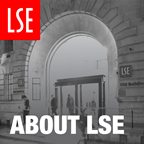 About LSERenaming the LSE Tower Buildings to commemorate the women's suffrage movementContributor(s): Dame Minouche Shafik | In the centenary year of the first votes for women in the UK, LSE's Towers buildings on Clement's Inn are being renamed after three leading campaigners from the women's suffrage movement. Find out more with LSE Director Minouche Shafik.2018-11-0502 min
About LSERenaming the LSE Tower Buildings to commemorate the women's suffrage movementContributor(s): Dame Minouche Shafik | In the centenary year of the first votes for women in the UK, LSE's Towers buildings on Clement's Inn are being renamed after three leading campaigners from the women's suffrage movement. Find out more with LSE Director Minouche Shafik.2018-11-0502 min About LSERenaming the LSE Tower Buildings to commemorate the women's suffrage movementContributor(s): Dame Minouche Shafik | In the centenary year of the first votes for women in the UK, LSE's Towers buildings on Clement's Inn are being renamed after three leading campaigners from the women's suffrage movement. Find out more with LSE Director Minouche Shafik.2018-11-0502 min
About LSERenaming the LSE Tower Buildings to commemorate the women's suffrage movementContributor(s): Dame Minouche Shafik | In the centenary year of the first votes for women in the UK, LSE's Towers buildings on Clement's Inn are being renamed after three leading campaigners from the women's suffrage movement. Find out more with LSE Director Minouche Shafik.2018-11-0502 min The Global Counsel Podcast'Welfare 2.0' with Lord Mandelson and Dame Minouche ShafikGlobal Counsel Chairman Peter Mandelson interviews a special guest - Director of the London School of Economics, former Deputy Governor of the Bank of England, Dame Minouche Shafik - on the topic of trust in institutions, economics and the labour market.For more blogs, insights and analysis please visit our website, www.global-counsel.co.uk, and subscribe to our mailing list. You can also follow us on Twitter at @Global_Counsel.The views expressed in this podcast can be attributed to the named author(s) only. Hosted on Acast. See acast.com/privacy for more information.2018-10-1514 min
The Global Counsel Podcast'Welfare 2.0' with Lord Mandelson and Dame Minouche ShafikGlobal Counsel Chairman Peter Mandelson interviews a special guest - Director of the London School of Economics, former Deputy Governor of the Bank of England, Dame Minouche Shafik - on the topic of trust in institutions, economics and the labour market.For more blogs, insights and analysis please visit our website, www.global-counsel.co.uk, and subscribe to our mailing list. You can also follow us on Twitter at @Global_Counsel.The views expressed in this podcast can be attributed to the named author(s) only. Hosted on Acast. See acast.com/privacy for more information.2018-10-1514 min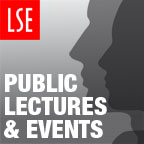 Latest 300 | LSE Public lectures and events | Audio and pdfThe Middle East after ISIS: what is at stake? [Audio]Speaker(s): Professor Gilles Kepel | ISIS has been defeated militarily, but the fight for the Middle East is just beginning. At this event Gilles Kepel, author of The Rise of Jihad in the West, discusses the future of the region and how it will shape global politics in the decades ahead. Hear more about how sectarian conflict, bold new leaders, economic changes, and shifting geopolitics will be at the centre of the struggle for power and influence in the Middle East. Gilles Kepel is Chair of Middle East and Mediterranean Studies at École Normale Supérieure. Minouche Shafik is Director of...2018-06-181h 37
Latest 300 | LSE Public lectures and events | Audio and pdfThe Middle East after ISIS: what is at stake? [Audio]Speaker(s): Professor Gilles Kepel | ISIS has been defeated militarily, but the fight for the Middle East is just beginning. At this event Gilles Kepel, author of The Rise of Jihad in the West, discusses the future of the region and how it will shape global politics in the decades ahead. Hear more about how sectarian conflict, bold new leaders, economic changes, and shifting geopolitics will be at the centre of the struggle for power and influence in the Middle East. Gilles Kepel is Chair of Middle East and Mediterranean Studies at École Normale Supérieure. Minouche Shafik is Director of...2018-06-181h 37 Latest 300 | LSE Public lectures and events | Audio and pdfFighting Corruption Is Dangerous: in conversation with Dr Ngozi Okonjo-Iweala [Audio]Speaker(s): Dr Ngozi Okonjo-Iweala | Ngozi Okonjo-Iweala’s new book, Fighting Corruption Is Dangerous: The Story Behind the Headlines, draws on her years as Nigeria’s Finance Minister to provide practical lessons on the difficult, sometimes-dangerous, always-necessary work of fighting graft and corruption. Determined to root out the fraudulent claims and other schemes that drain the country of resources and ultimately deprive the poor of crucial services, the former Managing Director of the World Bank, Okonjo- Iweala found herself and her family targeted for reprisals designed to force her to drop her anti-corruption campaign. She refused to stop or to resi...2018-05-161h 32
Latest 300 | LSE Public lectures and events | Audio and pdfFighting Corruption Is Dangerous: in conversation with Dr Ngozi Okonjo-Iweala [Audio]Speaker(s): Dr Ngozi Okonjo-Iweala | Ngozi Okonjo-Iweala’s new book, Fighting Corruption Is Dangerous: The Story Behind the Headlines, draws on her years as Nigeria’s Finance Minister to provide practical lessons on the difficult, sometimes-dangerous, always-necessary work of fighting graft and corruption. Determined to root out the fraudulent claims and other schemes that drain the country of resources and ultimately deprive the poor of crucial services, the former Managing Director of the World Bank, Okonjo- Iweala found herself and her family targeted for reprisals designed to force her to drop her anti-corruption campaign. She refused to stop or to resi...2018-05-161h 32 Latest 300 | LSE Public lectures and events | Audio and pdfPerspectives for the European Common Security and Defence Policy [Audio]Speaker(s): Dr Ursula von der Leyen | Ursula von der Leyen is Germany's Minister of Defence, a position she has held since 2013. Since 2005, Ursula von der Leyen has been a member of the German Federal Cabinet. Before she was appointed Minister of Defence, she served as Federal Minister of Labor and Social Affairs since November 2009. From 2005 to 2009, she was Federal Minister for Family Affairs, Senior Citizens, Women and Youth. Dr von der Leyen studied at Göttingen and Münster, Hanover Medical School and the London School of Economics and Political Science. Minouche Shafik is Director of the London School of...2018-02-2859 min
Latest 300 | LSE Public lectures and events | Audio and pdfPerspectives for the European Common Security and Defence Policy [Audio]Speaker(s): Dr Ursula von der Leyen | Ursula von der Leyen is Germany's Minister of Defence, a position she has held since 2013. Since 2005, Ursula von der Leyen has been a member of the German Federal Cabinet. Before she was appointed Minister of Defence, she served as Federal Minister of Labor and Social Affairs since November 2009. From 2005 to 2009, she was Federal Minister for Family Affairs, Senior Citizens, Women and Youth. Dr von der Leyen studied at Göttingen and Münster, Hanover Medical School and the London School of Economics and Political Science. Minouche Shafik is Director of the London School of...2018-02-2859 min Desert Island Discs: Archive: 2016-2018Dame Minouche ShafikDame Minouche Shafik is the director of the London School of Economics and a former Deputy Governor of the Bank of England.
She was born in Egypt but her family had to flee the country when she was four years old, because her parents lost everything during President Nasser's nationalisation programme. Her father, a scientist, found work in America, and Minouche and her sister attended numerous schools there, before she went back to Egypt at the age of 16. She trained as an economist, studying at the University of Massachusetts-Amherst and the London School of Economics before receiving her doctorate...2018-02-2535 min
Desert Island Discs: Archive: 2016-2018Dame Minouche ShafikDame Minouche Shafik is the director of the London School of Economics and a former Deputy Governor of the Bank of England.
She was born in Egypt but her family had to flee the country when she was four years old, because her parents lost everything during President Nasser's nationalisation programme. Her father, a scientist, found work in America, and Minouche and her sister attended numerous schools there, before she went back to Egypt at the age of 16. She trained as an economist, studying at the University of Massachusetts-Amherst and the London School of Economics before receiving her doctorate...2018-02-2535 min Desert Island DiscsDame Minouche ShafikDame Minouche Shafik is the director of the London School of Economics and a former Deputy Governor of the Bank of England.
She was born in Egypt but her family had to flee the country when she was four years old, because her parents lost everything during President Nasser's nationalisation programme. Her father, a scientist, found work in America, and Minouche and her sister attended numerous schools there, before she went back to Egypt at the age of 16. She trained as an economist, studying at the University of Massachusetts-Amherst and the London School of Economics before receiving her doctorate...2018-02-2535 min
Desert Island DiscsDame Minouche ShafikDame Minouche Shafik is the director of the London School of Economics and a former Deputy Governor of the Bank of England.
She was born in Egypt but her family had to flee the country when she was four years old, because her parents lost everything during President Nasser's nationalisation programme. Her father, a scientist, found work in America, and Minouche and her sister attended numerous schools there, before she went back to Egypt at the age of 16. She trained as an economist, studying at the University of Massachusetts-Amherst and the London School of Economics before receiving her doctorate...2018-02-2535 min Latest 300 | LSE Public lectures and events | Audio and pdfLSE Festival 2018 | The Giants of 2020 [Audio]Speaker(s): Dr Adura Banke-Thomas, Dr Tania Burchardt, Tammy Campbell, Kathleen Scanlon, Dr Jamie Woodcock | What are the key challenges of welfare states of the future? In a world of limited resources, what should our priority be? To close the LSE Festival, we will pit Beveridge's "five giants" (reimagined as the giant issues of housing and urbanisation, education and skills, health and social care, the future of work and the challenges of poverty), as well as sustainability, the missing sixth Giant voted for by you, against each other in a battle to decide which is the biggest issue now and...2018-02-241h 09
Latest 300 | LSE Public lectures and events | Audio and pdfLSE Festival 2018 | The Giants of 2020 [Audio]Speaker(s): Dr Adura Banke-Thomas, Dr Tania Burchardt, Tammy Campbell, Kathleen Scanlon, Dr Jamie Woodcock | What are the key challenges of welfare states of the future? In a world of limited resources, what should our priority be? To close the LSE Festival, we will pit Beveridge's "five giants" (reimagined as the giant issues of housing and urbanisation, education and skills, health and social care, the future of work and the challenges of poverty), as well as sustainability, the missing sixth Giant voted for by you, against each other in a battle to decide which is the biggest issue now and...2018-02-241h 09 Latest 300 | LSE Public lectures and events | Audio and pdfLSE Festival 2018 | The Five Giants and the Ministers who Made a Difference [Slides]Speaker(s): Nicholas Timmins, Professor Sir Julian Le Grand, Minouche Shafik | Five tools and massive programmes were adopted to tackle Beveridge's "Five Giants": A policy of full employment; a National Health Service; a massively extended system of education; a new housing programme; and a much modernised system of social security. But in the 75 years since they took effect, who have been the "Five Giant" ministers in each of these areas? In this opening event of the LSE Festival: Beveridge 2.0, Nicholas Timmins and Professor Sir Julian Le Grand debate who, among the many hundreds of politicians who have held office, really...2018-02-1900 min
Latest 300 | LSE Public lectures and events | Audio and pdfLSE Festival 2018 | The Five Giants and the Ministers who Made a Difference [Slides]Speaker(s): Nicholas Timmins, Professor Sir Julian Le Grand, Minouche Shafik | Five tools and massive programmes were adopted to tackle Beveridge's "Five Giants": A policy of full employment; a National Health Service; a massively extended system of education; a new housing programme; and a much modernised system of social security. But in the 75 years since they took effect, who have been the "Five Giant" ministers in each of these areas? In this opening event of the LSE Festival: Beveridge 2.0, Nicholas Timmins and Professor Sir Julian Le Grand debate who, among the many hundreds of politicians who have held office, really...2018-02-1900 min Latest 300 | LSE Public lectures and events | Audio and pdfLSE Festival 2018 | The Five Giants and the Ministers who Made a Difference [Audio]Speaker(s): Nicholas Timmins, Professor Sir Julian Le Grand, Minouche Shafik | Five tools and massive programmes were adopted to tackle Beveridge's "Five Giants": A policy of full employment; a National Health Service; a massively extended system of education; a new housing programme; and a much modernised system of social security. But in the 75 years since they took effect, who have been the "Five Giant" ministers in each of these areas? In this opening event of the LSE Festival: Beveridge 2.0, Nicholas Timmins and Professor Sir Julian Le Grand debate who, among the many hundreds of politicians who have held office, really...2018-02-191h 05
Latest 300 | LSE Public lectures and events | Audio and pdfLSE Festival 2018 | The Five Giants and the Ministers who Made a Difference [Audio]Speaker(s): Nicholas Timmins, Professor Sir Julian Le Grand, Minouche Shafik | Five tools and massive programmes were adopted to tackle Beveridge's "Five Giants": A policy of full employment; a National Health Service; a massively extended system of education; a new housing programme; and a much modernised system of social security. But in the 75 years since they took effect, who have been the "Five Giant" ministers in each of these areas? In this opening event of the LSE Festival: Beveridge 2.0, Nicholas Timmins and Professor Sir Julian Le Grand debate who, among the many hundreds of politicians who have held office, really...2018-02-191h 05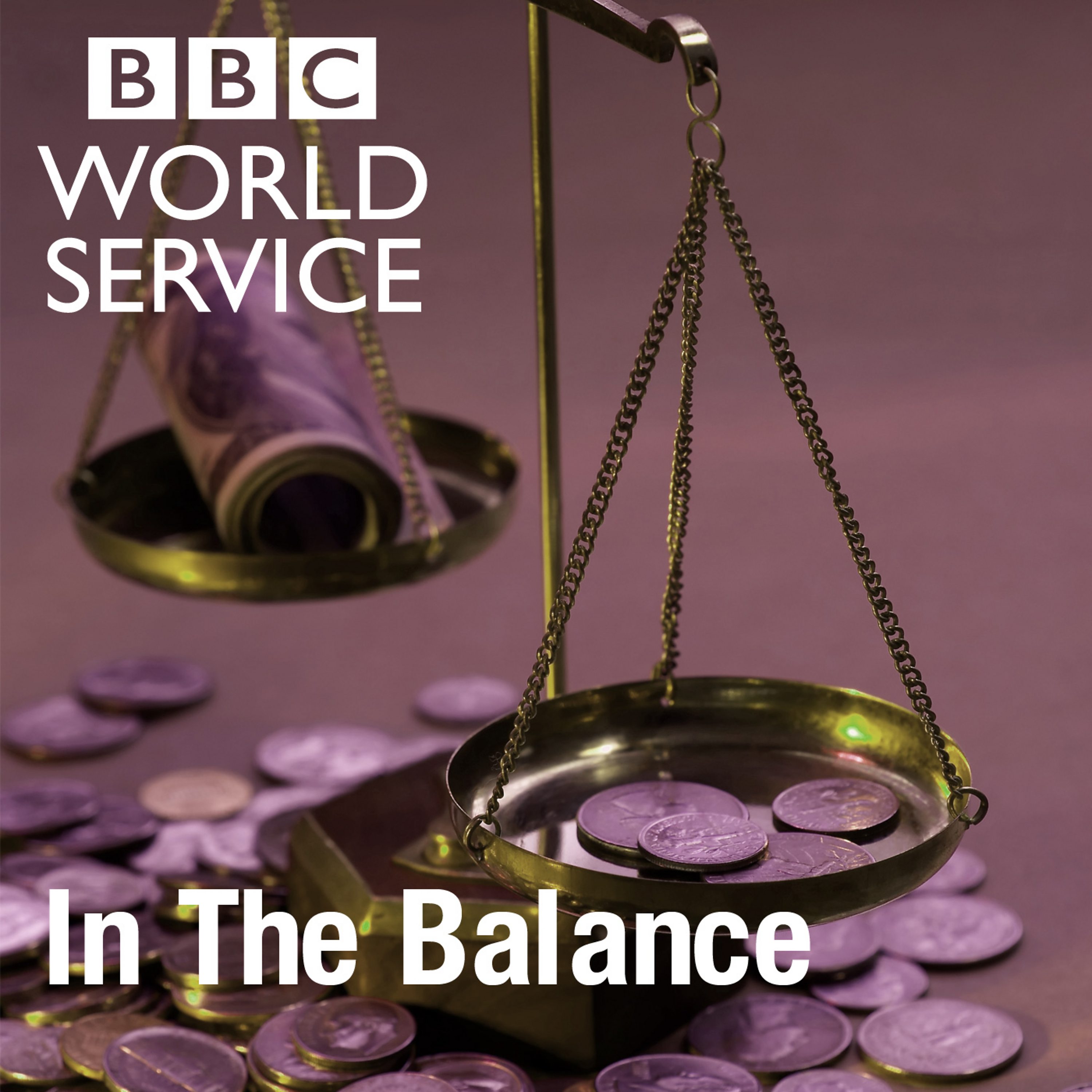 In the BalanceDavos: Spreading the Wealth?The world's top business people, politicians and economists have been meeting in the Swiss resort of Davos. In the Balance asks: Can capitalism deliver prosperity for all of us?The International Monetary Fund confirmed a strong picture for global growth this year - but is it the right kind of growth? The IMF report reveals that one fifth of emerging market economies saw per capita incomes fall last year. So, with global growth rising, why isn't everyone getting richer? Join Manuela Saragosa and her guests in Davos, Washington and London, to discuss whether global growth can reach...2018-01-2726 min
In the BalanceDavos: Spreading the Wealth?The world's top business people, politicians and economists have been meeting in the Swiss resort of Davos. In the Balance asks: Can capitalism deliver prosperity for all of us?The International Monetary Fund confirmed a strong picture for global growth this year - but is it the right kind of growth? The IMF report reveals that one fifth of emerging market economies saw per capita incomes fall last year. So, with global growth rising, why isn't everyone getting richer? Join Manuela Saragosa and her guests in Davos, Washington and London, to discuss whether global growth can reach...2018-01-2726 min Latest 300 | LSE Public lectures and events | Audio and pdfWelfare: from Beveridge to the fourth industrial revolution [Audio]Speaker(s): David Gauke | Beveridge offered a radical response to the social and economic circumstances of his time in a country emerging from global depression and conflict. Yet today’s world would be unrecognisable to Beveridge: the past 75 years have seen significant social and economic changes that the welfare system has needed to accommodate. We now face further significant changes as we enter the fourth industrial revolution. Our welfare system will need to change to adapt to future circumstances. David Gauke (@DavidGauke) was appointed Secretary of State for Work and Pensions in June 2017. He was elected the Conservative MP for He...2017-12-0746 min
Latest 300 | LSE Public lectures and events | Audio and pdfWelfare: from Beveridge to the fourth industrial revolution [Audio]Speaker(s): David Gauke | Beveridge offered a radical response to the social and economic circumstances of his time in a country emerging from global depression and conflict. Yet today’s world would be unrecognisable to Beveridge: the past 75 years have seen significant social and economic changes that the welfare system has needed to accommodate. We now face further significant changes as we enter the fourth industrial revolution. Our welfare system will need to change to adapt to future circumstances. David Gauke (@DavidGauke) was appointed Secretary of State for Work and Pensions in June 2017. He was elected the Conservative MP for He...2017-12-0746 min Latest 300 | LSE Public lectures and events | Audio and pdfBeveridge 2.0 - Rethinking the Welfare State for the 21st Century [Transcript]Speaker(s): Minouche Shafik, Professor Sir John Hills, Dr Waltraud Schelkle, Professor Richard Sennett, Professor Alex Voorhoeve | In November 1942, former LSE Director William Beveridge published a report that was to lay the foundation for Britain’s welfare state, caring for its citizens ‘from cradle to grave’. 75 years on, you are invited to join new LSE Director Dame Minouche Shafik, as she considers the future of social safety nets in a very different world economy. Minouche Shafik is Director of the London School of Economics and Political Science. Prior to this she was Deputy Governor of the Bank of England. John Hills...2017-11-2900 min
Latest 300 | LSE Public lectures and events | Audio and pdfBeveridge 2.0 - Rethinking the Welfare State for the 21st Century [Transcript]Speaker(s): Minouche Shafik, Professor Sir John Hills, Dr Waltraud Schelkle, Professor Richard Sennett, Professor Alex Voorhoeve | In November 1942, former LSE Director William Beveridge published a report that was to lay the foundation for Britain’s welfare state, caring for its citizens ‘from cradle to grave’. 75 years on, you are invited to join new LSE Director Dame Minouche Shafik, as she considers the future of social safety nets in a very different world economy. Minouche Shafik is Director of the London School of Economics and Political Science. Prior to this she was Deputy Governor of the Bank of England. John Hills...2017-11-2900 min Latest 300 | LSE Public lectures and events | Audio and pdfBeveridge 2.0 - Rethinking the Welfare State for the 21st Century [Audio]Speaker(s): Minouche Shafik, Professor Sir John Hills, Dr Waltraud Schelkle, Professor Richard Sennett, Professor Alex Voorhoeve | In November 1942, former LSE Director William Beveridge published a report that was to lay the foundation for Britain’s welfare state, caring for its citizens ‘from cradle to grave’. 75 years on, you are invited to join new LSE Director Dame Minouche Shafik, as she considers the future of social safety nets in a very different world economy. Minouche Shafik is Director of the London School of Economics and Political Science. Prior to this she was Deputy Governor of the Bank of England. John Hills...2017-11-291h 39
Latest 300 | LSE Public lectures and events | Audio and pdfBeveridge 2.0 - Rethinking the Welfare State for the 21st Century [Audio]Speaker(s): Minouche Shafik, Professor Sir John Hills, Dr Waltraud Schelkle, Professor Richard Sennett, Professor Alex Voorhoeve | In November 1942, former LSE Director William Beveridge published a report that was to lay the foundation for Britain’s welfare state, caring for its citizens ‘from cradle to grave’. 75 years on, you are invited to join new LSE Director Dame Minouche Shafik, as she considers the future of social safety nets in a very different world economy. Minouche Shafik is Director of the London School of Economics and Political Science. Prior to this she was Deputy Governor of the Bank of England. John Hills...2017-11-291h 39 Latest 300 | LSE Public lectures and events | Audio and pdfPartners or Adversaries? Managing US-China Relations in the Era of Trump [Audio]Speaker(s): Professor Michael Mastanduno, Minouche Shafik | The post-Cold War US-China “grand bargain” in economics and security is now unravelling, and faces new uncertainty in the era of Trump. Michael Mastanduno is Nelson A Rockefeller Professor of Government, Dartmouth College and the inaugural Susan Strange Professor of International Relations at LSE. Minouche Shafik is Director of the London School of Economics and Political Science. Prior to this she was Deputy Governor of the Bank of England. Peter Trubowitz (@ptrubowitz) is Head of Department and Director of the US Centre at LSE. The Department of International Relations (@LSEIRDept) is now in its...2017-11-161h 26
Latest 300 | LSE Public lectures and events | Audio and pdfPartners or Adversaries? Managing US-China Relations in the Era of Trump [Audio]Speaker(s): Professor Michael Mastanduno, Minouche Shafik | The post-Cold War US-China “grand bargain” in economics and security is now unravelling, and faces new uncertainty in the era of Trump. Michael Mastanduno is Nelson A Rockefeller Professor of Government, Dartmouth College and the inaugural Susan Strange Professor of International Relations at LSE. Minouche Shafik is Director of the London School of Economics and Political Science. Prior to this she was Deputy Governor of the Bank of England. Peter Trubowitz (@ptrubowitz) is Head of Department and Director of the US Centre at LSE. The Department of International Relations (@LSEIRDept) is now in its...2017-11-161h 26 Latest 300 | LSE Public lectures and events | Audio and pdfA World of Three Zeroes: the new economics of zero poverty, zero unemployment, and zero carbon emissions [Audio]Speaker(s): Dr Muhammad Yunus | The capitalist system, in its current form, is broken. In this lecture, Nobel Peace Prize-winning economist Dr Muhammad Yunus outlines his radical economic vision for fixing it, as explored in his new book A World of Three Zeroes. Muhammad Yunus (@Yunus_Centre) is the economist who invented microcredit, founded Grameen Bank, and earned a Nobel Peace Prize for his work towards alleviating poverty. He was awarded an Honorary Degree of Doctor of Science (Economics) by LSE in November 2011. Minouche Shafik is Director of the London School of Economics and Political Science. Prior to this she...2017-11-111h 19
Latest 300 | LSE Public lectures and events | Audio and pdfA World of Three Zeroes: the new economics of zero poverty, zero unemployment, and zero carbon emissions [Audio]Speaker(s): Dr Muhammad Yunus | The capitalist system, in its current form, is broken. In this lecture, Nobel Peace Prize-winning economist Dr Muhammad Yunus outlines his radical economic vision for fixing it, as explored in his new book A World of Three Zeroes. Muhammad Yunus (@Yunus_Centre) is the economist who invented microcredit, founded Grameen Bank, and earned a Nobel Peace Prize for his work towards alleviating poverty. He was awarded an Honorary Degree of Doctor of Science (Economics) by LSE in November 2011. Minouche Shafik is Director of the London School of Economics and Political Science. Prior to this she...2017-11-111h 19 Latest 300 | LSE Public lectures and events | Audio and pdfWTF: what the f--- happened and what happens next? [Audio]Speaker(s): Robert Peston | To celebrate the release of his new book WTF: What the F--- Happened and What Happens Next? Robert Peston will be helping us make sense of the significant events which are changing our lives. It has never been a scarier time and never has there been more uncertainty in every arena of public life. Peston will go through it all, answering the questions everyone is asking around their breakfast tables. He will explain what happened, how it happened and where we might be going. Peston will be in conversation with LSE Director Minouche Shafik. Robert Peston...2017-11-061h 28
Latest 300 | LSE Public lectures and events | Audio and pdfWTF: what the f--- happened and what happens next? [Audio]Speaker(s): Robert Peston | To celebrate the release of his new book WTF: What the F--- Happened and What Happens Next? Robert Peston will be helping us make sense of the significant events which are changing our lives. It has never been a scarier time and never has there been more uncertainty in every arena of public life. Peston will go through it all, answering the questions everyone is asking around their breakfast tables. He will explain what happened, how it happened and where we might be going. Peston will be in conversation with LSE Director Minouche Shafik. Robert Peston...2017-11-061h 28 Latest 300 | LSE Public lectures and events | Audio and pdfCan National Politics Still Support International Integration? The Case of the EU [Audio]Speaker(s): Professor Mario Monti | 60 years after its foundation, major tensions are facing the EU. From institutional to political and economic tensions, from geopolitical tensions (North vs South, West vs East) to tensions between net contributors and net recipients. Threatened by the “-EXIT” temptation in the background, national politics often collide with European integration’s basic principles. However, the “case for EU support” is still robust, as the domains where a balance between the national and the European level has been reached - the Euro, the single market and the competition policy - prove. Mario Monti (@SenatoreMonti) is President of Bocconi Un...2017-09-251h 25
Latest 300 | LSE Public lectures and events | Audio and pdfCan National Politics Still Support International Integration? The Case of the EU [Audio]Speaker(s): Professor Mario Monti | 60 years after its foundation, major tensions are facing the EU. From institutional to political and economic tensions, from geopolitical tensions (North vs South, West vs East) to tensions between net contributors and net recipients. Threatened by the “-EXIT” temptation in the background, national politics often collide with European integration’s basic principles. However, the “case for EU support” is still robust, as the domains where a balance between the national and the European level has been reached - the Euro, the single market and the competition policy - prove. Mario Monti (@SenatoreMonti) is President of Bocconi Un...2017-09-251h 25